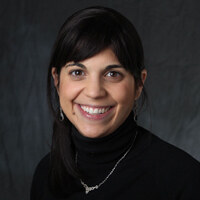
This webinar will address best practices for cooperative learning, including: considerations of various grouping arrangements, proactive management techniques, and creative variations of cooperative activities.
Laya Salomon
Dr. Laya Salomon is Associate Professor at the Azrieli Graduate School of Jewish Education and Administration at Yeshiva University and Director of Azrieli’s PELE Fellowship Program in Jewish Education. Dr. Salomon teaches master’s and doctoral level courses in leadership, supervision, curriculum, assessment, teaching methodologies and differentiated instruction, and she supervises student teachers. Prior to joining Azrieli in 2004, Dr. Salomon was a professor of psychology and education at Touro College and a Judaic studies teacher.
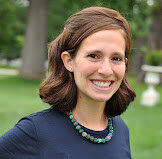
This webinar will teach you practical skills you can use every day to address challenging child behaviors. It will help you to understand better why your child is behaving the way they are, and know what you can do to help. We will focus on balancing behavioral skills, such as limit-setting, praise, and positive reinforcement, with communication tools, such as active listening and reflection, to help you create a structured, calm, and compassionate environment in your home.
Estie Reidler
Estie Reidler, PhD, completed her Doctoral degree in Clinical Psychology at Suffolk University in Boston and received her BA from Barnard College of Columbia University. In addition to Estie’s experience at Harvard’s McLean Hospital, she also trained at the Behavior Management Clinic at Kennedy Krieger and at the BU Center for Anxiety and Related Disorders.She worked on national mental health policy at the Center for School Mental Health and spent two years working in Baltimore City Public Schools. Her research has been presented at national meetings and published in peer-reviewed journals such as the Journal of Clinical Psychology and Journal of Youth and Adolescence.
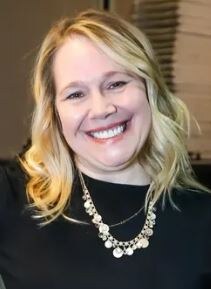
You set the emotional tone for your classroom, and creating calm in the classroom is about equipping you with your own inner toolbox of self-regulatory and self-management tools so you can model and teach them to their students. In this experiential webinar participants will learn evidence-based, relatable, accessible, and fun mindfulness tools and techniques that they will be able to implement into their classrooms.
Nancy Siegel
Nancy Siegel is an internationally recognized presenter, teacher trainer, and author specializing in mindfulness education and children’s yoga teacher training. For more than 20 years, she has created yoga and mindfulness inspired and educationally based programming that has resonated with school leaders, educators, parents, children and executives. She has a Master’s in Educational Leadership, completed Mindfulness Based Stress Reduction training, holds multiple Yoga Alliance accreditations, has a Registered Children’s Yoga School and is a Registered Children’s Yoga Teacher Trainer.
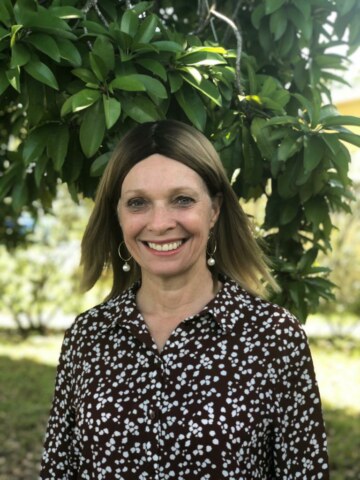
Meirav Kravetz is back to HSWOW for a third webinar, this time to share tools that can be used to encourage and develop authentic Hebrew speaking in your classroom, even among students that are anxious about speaking aloud. Learn how to plan oral assignments, guide your students to success evaluate an oral presentations.
Meirav Kravetz
Meirav Kravetz is a professional with vast experience in education, mentoring and leadership. She coaches and trains teachers in the US and Latin America, leading workshops, seminars and collaborative and expert webinars. Meirav recruits, supports and retrains new teachers, observes classes, and problem solves in order to maximize the effectiveness of the teachers in their classrooms. She demonstrates ability to advance learning objectives through her strengths in instructional planning, lesson presentation, student performance evaluation, and experiential learning. She is the foreign language coordinator for the Hebrew Academy of Miami, and an Educational Designer for the World Center for Jewish Education and an instructor at Touro College.
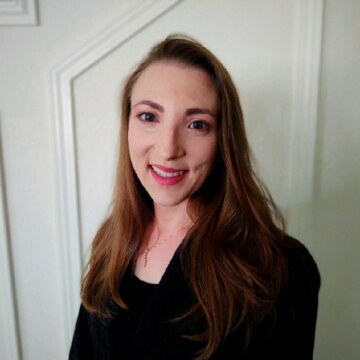
Explore the transformative potential of data-driven instruction in the classroom. Participants will discover practical strategies for collecting, analyzing, and leveraging data to personalize learning, monitor student progress, and make informed instructional decisions. Join us as we unlock the power of data to enhance student outcomes and cultivate a culture of evidence-based teaching.
Melissa Truelove
Mrs. Melissa Truelove is the General Studies Principal of Yeshiva Torat Emet in Houston, TX, and has over 15 years of experience in the field of education. She holds a an M.Ed. from Northern Arizona University in Educational Leadership and started her career as a teacher for 10 years at Tucson Hebrew Academy in Arizona. Mrs. Truelove has taught many elementary and middle school grades and subjects, for which she has received multiple national awards. She is passionate about many aspects of education, including data-driven instruction, curriculum development, instructional coaching, and presenting professional development workshops.
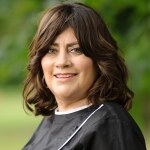
Join this webinar to learn about auditory processing and the difference between auditory and language processing. Perri Hecht will shares classroom strategies as well as guidance for teaching children self-management and self-advocacy tools.
Perri Hecht
Perri Hecht, M.S., CCC-SLP/A, Cert. AVT, LSLS is founder and director of Perri Hecht Speech and Auditory Services, specializing in social skills intervention, aural (re)habilitation, auditory processing disorders and executive dysfunction. She is also co-founder and co-director of Social Skills Plus. Perri presents at conferences throughout the tri-state area and nationally, and publishes in professional journals. She also consults for schools and school districts in New York and New Jersey, and has taught as an adjunct professor at Brooklyn College.
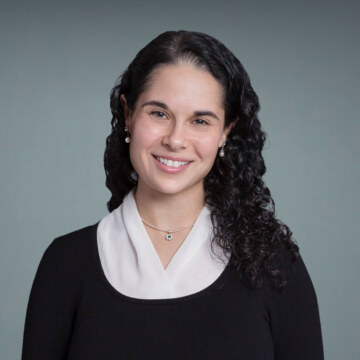
For many children and parents, staying on top of homework and long-term projects is a never-ending battle. Difficulties with tracking assignments, managing materials, time management and planning are often a major source of conflict at home and lead to missed assignments and under-achievement in school. In this webinar, Dr. Elana Spira provides tips on how to help children build and practice skills for organization, time management and planning.
Elana Spira
Elana G. Spira, PhD, is Clinical Assistant Professor of Child and Adolescent Psychiatry at the Child Study Center of Hassenfeld Children’s Hospital at New York University (NYU) Langone Health. She is coauthor of Organizational Skills Training for Children with ADHD: An Empirically Supported Treatment (for mental health professionals) and The Organized Child: An Effective Program to Maximize Your Kid’s Potential—in School and in Life (for parents), and participated in developing and testing the Organizational Skills Training program. Dr. Spira specializes in evidence-based assessment and treatment of children and adolescents with ADHD and behavior disorders, and currently sees patients through the NYU Child Study Center’s home- and school-based services in Westchester and Lower Rockland County, New York.
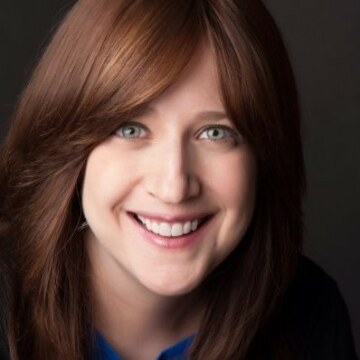
Learn practical strategies for sharing learning goals with students and incorporating goal setting into the classroom. Gain tools to involve students in reflecting on their progress as a means to facilitate individual growth and increase student agency.
Dr. Debra Drang
Dr. Debra Drang is the Director of Special Education at Sulam in Rockville, MD. Currently in her 24th year in education, she holds a Ph.D. in Special Education from University of Maryland, and has served in a variety of capacities including classroom teacher, itinerant teacher, mentor, teacher trainer/coach, and researcher. Debra has a strong record of applying current, research-based best practices to everyday classroom life. Her areas of expertise include inclusion, universal curriculum design, tiered instruction/intervention, classroom management, and progress monitoring.
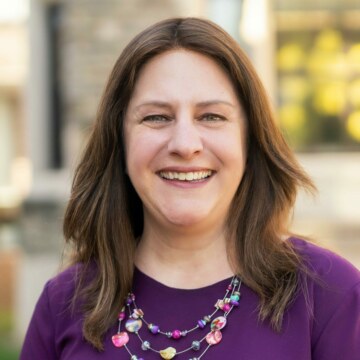
At Kohelet Yeshiva Lab and Middle School’s inception, the administrative team articulated student-centered Learning Principals, derived from what is known about how children learn. Join this webinar to learn about these principles, how they are implemented, and can drive your pedagogical decisions to create a joyful place of learning.
Becky Troodler
Mrs. Troodler is an experienced educator whose extensive teaching and administrative background spans the full range of early childhood, elementary and middle school grades. As the founding principal of Kohelet Yeshiva Lab School and Kohelet Yeshiva Middle School, she has worked with her team to create a K-8 Modern Orthodox day school based on Learning Principles that encapsulate what we know about how children learn. Before joining Kohelet Yeshiva, she was the General Studies Middle School Assistant Principal at Yeshivat Noam in NJ, and taught at Rosenbaum Yeshiva of North Jersey, and at the Jewish Educational Center in Elizabeth, NJ. Mrs. Troodler has a master’s degree in Teaching Mathematics K-8 and a bachelor’s degree in Elementary Education.
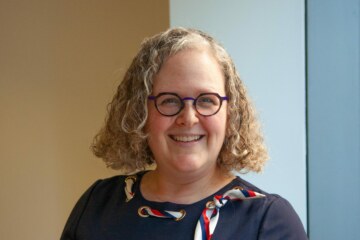
Assessments can and ought to be an essential component of the student learning process. This webinar utilizes psychological research to shed light on how educators may maximize the opportunities that assessments offer to foster student growth, in addition to evaluating their progress.
Tamar Appel
Tamar Appel, Director of Education for Hidden Sparks, is a past Associate Principal of Ma’ayanot Yeshiva High School for Girls in Teaneck, NJ, having served there as a teacher and administrator for a combined 18 years. As an educational leader, she has created a culture of ongoing professional development, supportive and productive mentorship of faculty, and academic excellence. She has also served as a mentor for school leaders through Prizmah’s YOU Lead Program and for new teachers through the Jewish New Teacher Project, and has pursued her own professional growth through programs including the Summer Institute for Principals at the Harvard Graduate School of Education. Tamar is passionate and confident about the potential for growth in every student, teacher and school, and she is excited to facilitate this as part of the Hidden Sparks team.

Universal Design for Learning (UDL) is a research-based framework that teachers use to design lessons that reduce barriers and increase access to learning for all students. This webinar will introduce the main ideas and key concepts of UDL, which can be used as a springboard for more in-depth study. It is an exciting, innovative and paradigm-shifting perspective on learning, teaching, and planning!
Dr. Debra Drang
Dr. Debra Drang is the Director of Special Education at Sulam in Rockville, MD. Currently in her 24th year in education, she holds a Ph.D. in Special Education from University of Maryland, and has served in a variety of capacities including classroom teacher, itinerant teacher, mentor, teacher trainer/coach, and researcher. Debra has a strong record of applying current, research-based best practices to everyday classroom life. Her areas of expertise include inclusion, universal curriculum design, tiered instruction/intervention, classroom management, and progress monitoring.
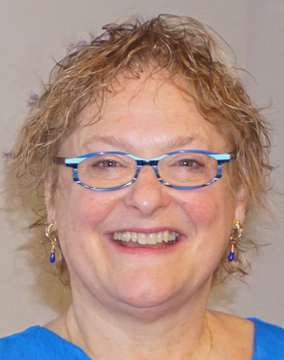
To be a successful reader, your students’ brains are required to orchestrate a variety of cognitive domains for each part of the reading process. In this workshop you will have the opportunity to look into what cognitive domains are required for reading comprehension, how to identify if students have an asset or challenge in these domains, and specific strategies to move your struggling readers to reading success
Hollis Dannaham
Hollis Dannaham, M.Ed., has been empowering complex learners for 30 years as a learning specialist, special educator, reading specialist, administrator, and consultant in public, private, and charter schools. Hollis also worked as a learning specialist at the Student Success Center of All Kinds of Minds where she was deeply trained in the Neurodevelopment of Learning. Currently Hollis is the Learning Support Coordinator at The Middle Way School, a Senior Coach, Mentor, and Workshop Facilitator for Hidden Sparks, and an Adjunct Lecturer at SUNY New Paltz.
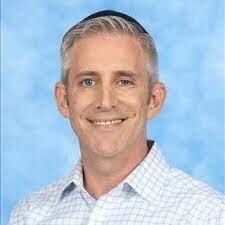
Learning Gemara is a complex task involving many cognitive functions and academic skills. Lack of experience or a deficiency in any one of these functions or skills can make the experience of learning Gemara an overwhelming task for a student. In this workshop, educators will learn how to identify each of the demands inherent in a Gemara lesson and target instructional goals.
Rabbi Avi Wasser
Rabbi Avi Wasser is the Director of Learning and Academic Support at Katz Yeshiva High School in Boca Raton, FL. With an MA in Special Education Rabbi Wasser has been working with students with learning, behavioral and emotional disabilities in Middle and High School settings for 20 years, as a Rebbe, General Studies teacher, and administrator. He taught Judaic studies and math to self-contained classes of students with learning, emotional and behavioral disabilities at the Ptach program, where he developed a methodology for teaching Gemara that enabled students of all levels to learn successfully.

To be a successful reader, your students’ brains are required to orchestrate a variety of cognitive domains for each part of the reading process. In this workshop you will have the opportunity to look into what cognitive domains are required for reading decoding and fluency, how to identify if students have an asset or challenge in these domains, and specific strategies to move your struggling readers to reading success.
Hollis Dannaham
Hollis Dannaham, M.Ed., has been empowering complex learners for 30 years as a learning specialist, special educator, reading specialist, administrator, and consultant in public, private, and charter schools. Hollis also worked as a learning specialist at the Student Success Center of All Kinds of Minds where she was deeply trained in the Neurodevelopment of Learning. Currently Hollis is the Learning Support Coordinator at The Middle Way School, a Senior Coach, Mentor, and Workshop Facilitator for Hidden Sparks, and an Adjunct Lecturer at SUNY New Paltz.
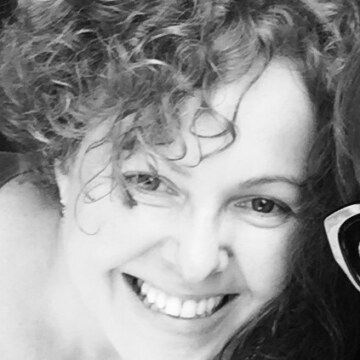
According to research, more than 50% of all struggling readers are not diagnosed with any specific disabilities. Begin to learn how to help them decode Hebrew using a multi-sensory, phonetic approach based on the Orton Gillingham method of instruction. This is an innovative methodology that was developed after extensive research on teaching Hebrew decoding skills to children with dyslexia and other language and reading disabilities.
Sonia Levin
Sonia Levin is the founder of OG for Hebrew. In 2016, in partnership with Andie Greer, a fellow of the Orton Gillingham Organization, Sonia developed a unique revolutionary methodology for teaching Hebrew decoding, based on the essentials of Orton-Gillingham methodology. Over the last 10 years, she has been facilitating many professional education trainings across the country and in Israel. Sonia holds an MA in Education from Tel Aviv University, an MA in Jewish Education from Jewish Theological Seminary in New York, as well as a Special Education certification from Teachers College at Columbia University.
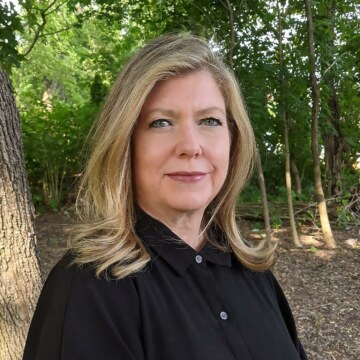
The transition of going back to school brings change and uncertainty. Model confidence for your children as you create structure and set goals to create a positive tone for a great start to the new school year. In this webinar we will discuss concrete strategies you can use to start the new school year on strong footing.
Ethel Salomon
Ethel Salomon, Director, HIdden Sparks Parent Education Ceneter (PEC), has extensive experience in supporting children, parents, and schools having most recently served as Principal of General Studies at Yeshiva Ketana of Manhattan. She is highly skilled in promoting student-centered services and supports, and developing programming for families and teachers that focuses on understanding neurodevelopmental profiles, positive behavior systems and collaborative problem solving. She has been advocating for children and parents of diverse learners in the yeshiva and day school community for over 20 years since her prior positions as the Director of Special Services for the Rosenbaum Yeshiva of North Jersey and the Rabbi Pesach Raymon Yeshiva. Mrs. Salomon holds an MA in Special Education from Teachers College, Columbia University and an MS from Brooklyn College in Educational Leadership and Supervision.
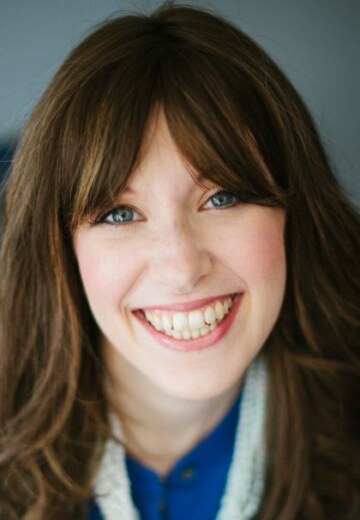
In recent years, bestselling authors have published book after book in the pursuit of supporting parents. As a Jewish community, we have the opportunity to tap into the ancient wisdom that Judaism offers into the process of growing up in very real and contemporary ways. Timeless truths about development, from early childhood through adolescence and beyond, can inform the way we relate to the children in our lives. We will examine questions like, “If we encourage the youngest among us to ask questions, like at the Seder, how do we understand their ability to absorb concrete and philosophical information?” and “How do the assumptions about responsibility match up with the developmental realities of a Bar or Bat Mitzvah child?”
Dr. Aviva Goldstein
Dr. Aviva Goldstein is a lecturer, educator and family counselor based in Jerusalem. She occupies the space where the worlds of positive psychology, parenting and Judaism come together. Having worked with diverse populations – from day school administrators to gap year students, from non-profit organizations to teachers in Israel’s periphery – her projects range from curriculum and app development to individual and large-scale interventions. The common thread throughout her work is the desire to bring research findings and insights about children to the people who raise them.
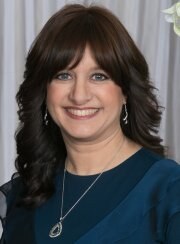
What is project-based learning? How is it planned and implemented? What place does it have in Jewish Day schools, especially in the Limudei Kodesh classroom? This webinar will present the pros and cons of using PBL, and share real-life examples from Jewish Day Schools who are adapting PBL to use in their classrooms.
Etti Siegel
Mrs. Etti Siegel holds a MS in Teaching and Learning/Educational Leadership and brings sound teaching advice to her audiences culled from her over 30 years of teaching and administrative experience. Etti spent four years as an Adjunct Professor at Aspen University and is now an Adjunct at Concordia College of NY. She is a coach and educational consultant for educational coaching agencies such as Catapult and HigherSchools, is a sought after mentor and workshop presenter around the country, and a popular presenter for Sayan (a teacher mentoring program), Yachad/OU, and the Consortium of Jewish Day Schools.
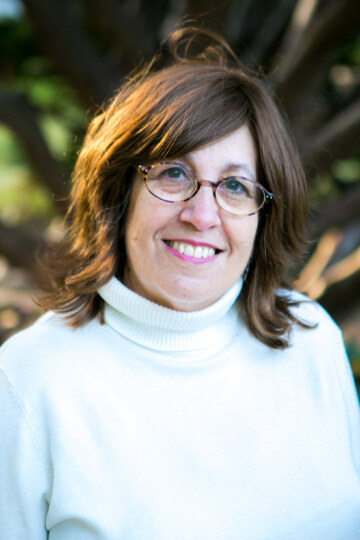
“You have to wait!” is a phrase that has become harder and harder to implement in a world replete with immediate gratification. In this workshop we’ll explore the underlying mechanisms of delayed gratification and discuss concrete ways in which we can build the skill of delaying gratification within ourselves and in our children.
Dr. Oshra Cohen
Dr. Oshra Cohen earned her B.A in Psychology at McGill University and her M.A and Ph.D in Clinical Psychology, Health Emphasis from the Ferkauf Graduate School of Psychology at Yeshiva University. She is the Director of Cognitive Behavioral Health Psychology, LLC, a private practice which specializes in Cognitive Behavioral Therapy with offices in Manhattan and Rockland County, NY. In addition, she is part of the Guidance Department at Ma’ayanot Yeshiva High School for Girls. Prior to that, Dr. Cohen worked at The New York State Psychiatric Institute, served as a clinical health psychologist at CAPS of Rockland County, and was an adjunct faculty member at Stern College and at the Albert Einstein College of Medicine, Department of Epidemiology.
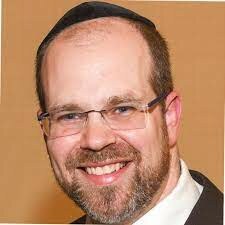
In this presentation for parents, in collaboration with Sinai Schools, you will hear from an OT and Psychologist who works with children with sensory challenges as well as an interior decorator who helps parents design sensory-friendly spaces in the home. Deepen your understanding of the daily challenges that children with sensory processing challenges face, strategies for amelioration, and how to tweak your home spaces to make them as comfortable as possible for your children.

This session will explore best practices for mentoring and supervising colleagues and teachers, supported by the research-based understanding of how people learn and grow. It will include suggestions for setting goals, providing effective feedback and motivating change. Sample evaluation protocol and feedback tools will be shared.
Laya Salomon
Dr. Laya Salomon is Associate Professor at the Azrieli Graduate School of Jewish Education and Administration at Yeshiva University and Director of Azrieli’s PELE Fellowship Program in Jewish Education. Dr. Salomon teaches master’s and doctoral level courses in leadership, supervision, curriculum, assessment, teaching methodologies and differentiated instruction, and she supervises student teachers. Prior to joining Azrieli in 2004, Dr. Salomon was a professor of psychology and education at Touro College and a Judaic studies teacher.
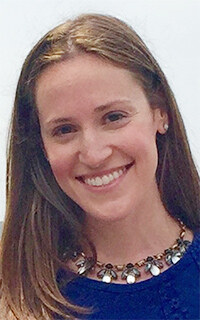
Every year teachers have the incredible privilege and challenge of teaching students with a range of learning profiles. This session will focus on strategies to teach students with language based learning disabilities. Participants will gain an understanding of what they are and how they impact student learning. A focus of the session will include practical strategies to implement in your classrooms to meet the needs of diverse learners.
Naomi Schimmel
Dr. Naomi Schimmel is the Head of Lower School at Shefa School. She has over ten years of experience working with children at a variety of levels and in different settings. Dr. Schimmel received her B.A. from The George Washington University and her Master’s Degree in Special Education from Hunter College. She earned her doctorate in Curriculum and Teaching from Fordham University. Dr. Schimmel began her career as a classroom teacher at the Churchill School, teaching second and fourth graders. Most recently she was a learning specialist at Riverdale Country School, where she provided differentiated instruction for students, implemented assessment models, and designed curriculum. Dr. Schimmel has supported teachers in enhancing their literacy instruction, and created professional development workshops for her colleagues. She has also taught a graduate course in the childhood education program at Fordham University.

In this session we will look into the objectives of Hebrew reading comprehension and the different genres of texts we should expose our students to. We use the UBD method (Understanding By Design) in order to examine different strategies that promote comprehension and encourage more student independence. We will offer a variety of tools that will assist teachers when they use texts as the basis for oral expression
Meirav Kravetz
Meirav Kravetz is a professional with vast experience in education, mentoring and leadership. She coaches and trains teachers in the US and Latin America, leading workshops, seminars and collaborative and expert webinars. Meirav recruits, supports and retrains new teachers, observes classes, and problem solves in order to maximize the effectiveness of the teachers in their classrooms. She demonstrates ability to advance learning objectives through her strengths in instructional planning, lesson presentation, student performance evaluation, and experiential learning. She is the foreign language coordinator for the Hebrew Academy of Miami, and an Educational Designer for the World Center for Jewish Education and an instructor at Touro College.
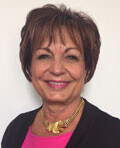
One of the best ways to raise student achievement is through high quality co-teaching with a co-teacher or assistant. Gain practical guidance on applying effective models to your classroom so that you can incorporate station-based learning, observation time and small group instruction.
Margaret Searle
Margaret Searle is the founder of Searle Enterprises, a consultant group working in the areas of collaboration, problem-solving, and innovative teaching techniques. She regularly presents at conferences nationally and works with individual school districts to develop and implement continuous improvement plans. She has taught in all grades from kindergarten through 8th grade. Her background also includes serving as a Title I director, a middle school principal, an elementary principal, and a K-12 supervisor. She served as president of the Ohio Association of Elementary School Administrators and was as an education advisor to President George H. W. Bush.Searle is the author of the Ohio Department of Education’s Standards-Based Instruction for All Learners: A Treasure Chest for Principal-led Building Teams (2004), a how-to book on differentiation, inclusion, and collaborative problem-solving. Her second book, What To Do When You Don’t Know What To Do: Building a Pyramid of Interventions (2007), describes a step-by-step method for diagnosing causes of troublesome issues and provides guidelines for actively involving parents and students in problem-solving. Her third book, Response to Intervention: What Every School Leader Needs To Know About RTI (2010) and the companion DVD on secondary school RTI interventions are practical guides for teachers and administrators who want to build a culture of data-driven decision making supported by research-based interventions. Causes and Cures in the Classroom: Getting to the Root of Academic and Behavior Problems (2013) reveals new neurological research about how underdeveloped executive function skills can cause poor behavior and achievement and gives specific strategies for addressing these problems. Searle’s most recent book, Teacher Teamwork: How Do We Make It Work? shows how to build productive teams and intentionally create an environment of professional engagement in your school.

What is spirituality and how does it help children and teens grow into strong, resilient adults? This webinar will explore spirituality through the childhood and adolescent years and provide strategies for building it in our students and children.
Dr. Rona Novick
Rona Novick, PhD, Co-Educational Director of Hidden Sparks, is the Dean of the Azrieli Graduate School of Jewish Education and Administration at Yeshiva University and holds the Raine and Stanley Silverstein Chair in Professional Ethics and Values. She holds an appointment as Associate Clinical Professor of Child Psychology at North Shore-Long Island Jewish Medical Center.

For Parents and Educators. How often we wonder why some students can achieve milestones while others struggle to keep up, and if these differences are part of typical development or indicators of more significant challenges? Understanding child development can be an extremely powerful and helpful lens for teachers. In this session, we will present child developmental along a continuum, from typically developing children to those with developmental challenges in behavior or learning. Some behavioral and learning issues that are outside the pattern of typical development will be explored and we will discuss the developmental tasks usually mastered at particular ages and phases.
Dr. Rona Novick
Rona Novick, PhD, Co-Educational Director of Hidden Sparks, is the Dean of the Azrieli Graduate School of Jewish Education and Administration at Yeshiva University and holds the Raine and Stanley Silverstein Chair in Professional Ethics and Values. She holds an appointment as Associate Clinical Professor of Child Psychology at North Shore-Long Island Jewish Medical Center.

This workshop will focus on specific strategies to support students who need a variety of strategies to build vocabulary. We will explore various types of graphic organizers, instructional models, targeted strategies and materials to support and enhance vocabulary instruction.
Hollis Dannaham
Hollis Dannaham, M.Ed., has been empowering complex learners for 30 years as a learning specialist, special educator, reading specialist, administrator, and consultant in public, private, and charter schools. Hollis also worked as a learning specialist at the Student Success Center of All Kinds of Minds where she was deeply trained in the Neurodevelopment of Learning. Currently Hollis is the Learning Support Coordinator at The Middle Way School, a Senior Coach, Mentor, and Workshop Facilitator for Hidden Sparks, and an Adjunct Lecturer at SUNY New Paltz.

Vocabulary is the basis for language acquisition. In this webinar, participants will learn a variety of ways to enhance Hebrew vocabulary instruction. They will be exposed to methods that help learners remember words and authentic formats for implementing usage of the new vocabulary words.
Meirav Kravetz
Meirav Kravetz is a professional with vast experience in education, mentoring and leadership. She coaches and trains teachers in the US and Latin America, leading workshops, seminars and collaborative and expert webinars. Meirav recruits, supports and retrains new teachers, observes classes, and problem solves in order to maximize the effectiveness of the teachers in their classrooms. She demonstrates ability to advance learning objectives through her strengths in instructional planning, lesson presentation, student performance evaluation, and experiential learning. She is the foreign language coordinator for the Hebrew Academy of Miami, and an Educational Designer for the World Center for Jewish Education and an instructor at Touro College.
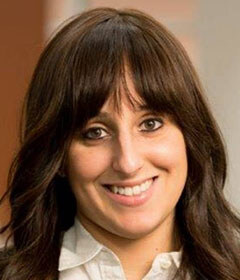
Collaborative Problem Solving® (CPS) is a big shift when it comes to understanding your child’s challenging behavior and what to do about it. It is proven to reduce challenging behavior, improve family relationships, and help your child build the skills they lack. This webinar will introduce you to a method for partnering with your child to identify the triggers for their challenging behavior, and work together to produce a game plan for how to handle problems before they happen.
Tamar Shames
Tamar Shames is the Director of Professional Development at REACH and works with the Chicago day school system to meet the educational and social/emotional needs of all students. Tamar develops and facilitates professional development sessions that build the internal capacity of hundreds of teachers and administrators. Tamar has expertise related to Collaborative Problem Solving, and is a certified trainer in the model. Prior to joining REACH in 2015, Tamar served as the Learning Center Director at Ramaz Middle School where she facilitated academic accommodations and curricular modifications for students and supervised and mentored fellow teachers. Tamar graduated from Barnard College with a B.A. in Psychology and Education and continued on to Bank Street College of Education where she earned her Masters of Education in Special Education.
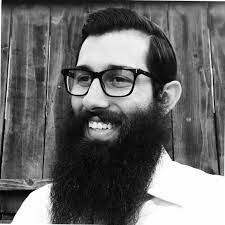
In today’s world, we have an incredible opportunity to provide students with resources and experiences that will help students develop strong creative and critical thinking skills to solve interesting problems in the world. In this session, Michael will share what that innovative practice looks like and how it can better prepare our students for the future .
Rabbi Michael Cohen
Michael Cohen, The Tech Rabbi, is a designer, educator and creativity instigator. His mission is to help educators around the world reveal their own creative abilities so they can empower students to solve interesting problems and become positive contributors to our global society. He is the author of the book Educated By Design, which outlines his principles for revealing and nurturing our innate creative courage and capacity. He is a national keynote speaker, advisor, and trainer. When he isn’t traveling the world sharing his message, he serves as the director of innovation for Yeshiva University of Los Angeles Boys School (YULA) where he manages and teaches at the Schlesinger STEAM and Entrepreneurship Center. He’s also an Apple Distinguished Educator, Google Certified Trainer, Adobe Certified Trainer, has been ranked as one of today’s top 50 EdTech influencers, and was recognized as Tech & Learning magazine “Most Inspiring in EdTech in 2019.”

This session will explore the power of questions in the classroom by examining:
- Questioning as an effective instructional technique;
- Questioning strategies that ensure active engagement and whole-class involvement;
- The Do’s and Don’ts in questioning – how to and how not to ask questions;
- Higher order cognition – the value of higher order questions and examples of questions that range in level of cognition;
- Research-based strategies for effectively responding to student questions; and
- Suggestions for creating an environment that supports student questions
Laya Salomon
Dr. Laya Salomon is Associate Professor at the Azrieli Graduate School of Jewish Education and Administration at Yeshiva University and Director of Azrieli’s PELE Fellowship Program in Jewish Education. Dr. Salomon teaches master’s and doctoral level courses in leadership, supervision, curriculum, assessment, teaching methodologies and differentiated instruction, and she supervises student teachers. Prior to joining Azrieli in 2004, Dr. Salomon was a professor of psychology and education at Touro College and a Judaic studies teacher.

As we all deal with uncertainty and ongoing reminders of how covid-19 has impacted our lives, how can we determine whether children’s worries are excessive? How can we support children’s healthy development and safety in our new reality? Adult and child strategies for managing the unknown will be discussed.
Dr. Rona Novick
Rona Novick, PhD, Co-Educational Director of Hidden Sparks, is the Dean of the Azrieli Graduate School of Jewish Education and Administration at Yeshiva University and holds the Raine and Stanley Silverstein Chair in Professional Ethics and Values. She holds an appointment as Associate Clinical Professor of Child Psychology at North Shore-Long Island Jewish Medical Center.
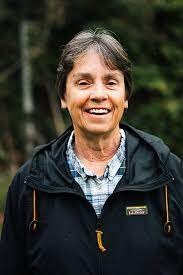
As the nursery rhyme goes…”all the King’s horses and all the King’s men, couldn’t put Humpty together again.” While that may be true, professionals and parents can by tipping the scale from vulnerability to strengths. This session will explore resiliency as an active ingredient to a life at peace with its past, content with its present and optimistic about the future. It offers field-tested strategies so every child can navigate stormy waters without capsizing and how to create safe harbors for those whose storms continue to crash their shores and toss them about in the surf.
Jeanine Fitzgerald
Jeanine Fitzgerald draws on more than 40 years of professional experience to empower teachers and parents. As a certified Human Behavior Consultant and Specialist, and owner of The Fitzgerald Institute of Lifelong Learning, Jeanine specializes in research-based strategies that maximize the fulfillment of a child’s potential and their implementation in “real life” settings. She understands the daily struggles of educators and parents and honors the “hero within” each individual she has the privilege to work alongside. As a speaker, consultant and master trainer, Jeanine has worked with thousands of children, professionals and parents across the country. As an author, Jeanine has published The Dance of Interaction and two national training programs entitled Education with Insight and Parenting with Insight. She is currently putting the finishing touches on her second book, Educating the Heart.

Self-regulation is a complex set of skills that exert influence over internal sensations and states. These skills are necessary for consistent performance, behavior and school readiness. This webinar explores self-regulatory functions through a developmental lense and offers proven strategies to develop and strengthen them in the early childhood years.
Jeanine Fitzgerald
Jeanine Fitzgerald draws on more than 40 years of professional experience to empower teachers and parents. As a certified Human Behavior Consultant and Specialist, and owner of The Fitzgerald Institute of Lifelong Learning, Jeanine specializes in research-based strategies that maximize the fulfillment of a child’s potential and their implementation in “real life” settings. She understands the daily struggles of educators and parents and honors the “hero within” each individual she has the privilege to work alongside. As a speaker, consultant and master trainer, Jeanine has worked with thousands of children, professionals and parents across the country. As an author, Jeanine has published The Dance of Interaction and two national training programs entitled Education with Insight and Parenting with Insight. She is currently putting the finishing touches on her second book, Educating the Heart.
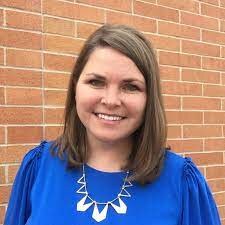
Do you have a few students that you just can’t seem to reach with your instruction? In this webinar, you’ll be learning about why multisensory math is appropriate for ALL learners (K – 12) and why it is essential for students that struggle. We’ll share research, ideas you can implement, and resources to expand your teaching tool kit.
– Multisensory Math Additional Information
Adrianne Meldrum
Adrianne Meldrum is a certified multisensory math instructor and studied under Marilyn Zecher, CALT. She runs a team of multisensory math tutors at mathformiddles.com. Her goal is to make multisensory math available to as many students as possible. Connect with her @ mathformiddles.com.
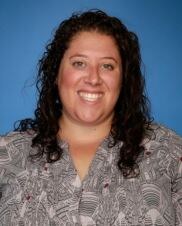
This workshop will guide novice and more seasoned classroom-based technology users into integrating technology in a strategic and impactful way. In this workshop participants will review the SAMR Model and Bloom’s Taxonomy, two frameworks used by educators to help design tasks and lessons that use technology, as well as understand how they impact student outcomes. Participants will also be tasked with thinking about the apps and websites they are currently using in their curriculum.
Monica Klein
Monica Klein holds a Master’s degree from Bank Street and has over ten years of education experience. She is currently the Lower School Technology and Design Teacher at the Dwight School. Monica began her education career at the Museum of Jewish Heritage, where she oversaw 250 museum educators and led tours of the museum exhibitions. Later, after a few years as a pre-school teacher at Hebrew Academy of the Five Towns and Rockaway she shifted in to their educational technology team. Monica worked at Ramaz Lower School as the education technology specialist where she taught classes for kindergarten-fourth grade students and worked with faculty on technology integration. Prior to her current position, she worked as the Educational Technology Consultant at DigitalJLearning, of The Jewish Education Project.
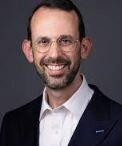
Mindfulness has shown to effect emotion regulation, focus and awareness, and positive emotions. In this workshop participants will be introduced to mindfulness and how it can improve one’s effectiveness as a teacher both inside and outside the classroom. Mindfulness will be broken down into concrete and practical skills that one can implement immediately following the workshop in your capacity as a teacher.
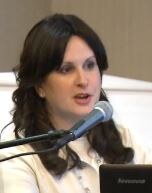
Helping pre-teens, and teens adjust to a new department of schooling and the different expectations that accompany it, is an oft neglected but crucial part of education. This webinar will empower teachers of middle school, junior high, and high school to understand the key changes that occur, as well as some easy ideas for scaffolding and supporting students with intentional lessons and targeted discussions. You’ll explore topics indulging time management, study skills, healthy habits of sleep, changing social dynamics, self-advocacy, coping strategies, stress reduction, the hidden curriculum and understanding key school personnel.
Zipora Schuck
Zipora Schuck, MA, MS, is the founder of Pathways Consulting Services LLC, an agency providing professional development services to teachers, principals, therapists and parents. She is a NYS Certified school psychologist holding masters degrees in both special education and school psychology. Mrs. Schuck is currently the Director of the Learning Center at the Beth Rochel School. She is a Catapult premium provider as well as a Torah Umesorah trainer whose popular workshops are usually standing room only! Additionally, she serves as adjunct faculty for Mercy College in their school of Education and Psychology.
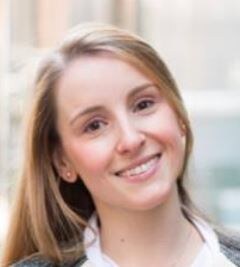
Angie will be presenting research-based lesson ideas and tools and share web-based learning programs that support the development of Hebrew decoding for students. These ideas are based on her own practice working with students with language-based learning disabilities, where she has adopted multi-sensory components from Orton-Gilingham based reading programs including Preventing Academic Failure and Wilson Fundations to create a powerful and effective Kriah program.
Angelina Swenson
Angie Yucht Swenson is the Hebrew Language Coordinator at the Shefa School. Angie pioneered Shefa’s multisensory Hebrew reading program and continues to identify best practices in teaching Hebrew to students with language-based learning disabilities. Currently, Angie teaches small groups of students, builds curriculum and coaches teachers on Hebrew literacy. Prior to joining Shefa, Angie was a classroom teacher at the Aaron School, and served as a Hebrew language learning specialist at the Heschel School. Angie has been committed to finding best practices in teaching Hebrew to students with language based learning disabilities and ensuring that each student feels confident with their Hebrew language skills. Angie received her B.A. from Cornell University and a Masters Degree in Special Education from Hunter College. She is currently enrolled in a Masters Degree program in School Leadership at Bank Street College.
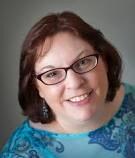
The language around struggling learners can be confusing: IEPs, 504s, accommodations, modifications. Even once you know what it all means, it’s not always easy to know which accommodations are best for your child or what they look like in the classroom. You will learn the difference between accommodations and modifications and discuss some commonly-used ones. Then, you’ll explore what they look like in practice, how to know if they’re working well, and ways for families and teachers to partner to track progress and optimize student learning.
Amanda Morin
Amanda Morin is a parent advocate and former teacher. She worked in classrooms and as an early intervention specialist for 10 years, providing education and training to parents of children with disabilities and leading multidisciplinary teams in developing and implementing Individual Family Service Plans. Since 2007, she has been working as an education writer and, more recently, as a parent advocate to empower parents and affirm the pivotal role they play in their child’s education. Morin received a bachelor’s degree in education from the University of Maine and special education advocacy training from the Council of Parent Attorneys and Advocates. She is the author of three books: The Everything Parent’s Guide to Special Education, The Everything Kids’ Learning Activities Book and On-the-Go Fun for Kids: More Than 250 Activities to Keep Little Ones Busy and Happy—Anytime, Anywhere!

This webinar will discuss predicting and noticing signs of escalating behavioral difficulties in students. It will provide participants with strategies to engage students in these most challenging moments, and strategies to help de-escalate and calm difficult situations. Participants will learn about identifying inappropriate behaviors and how to cultivate appropriate behavior. Strategies for students of all ages will be presented.
Dr. Rona Novick
Rona Novick, PhD, Co-Educational Director of Hidden Sparks, is the Dean of the Azrieli Graduate School of Jewish Education and Administration at Yeshiva University and holds the Raine and Stanley Silverstein Chair in Professional Ethics and Values. She holds an appointment as Associate Clinical Professor of Child Psychology at North Shore-Long Island Jewish Medical Center.
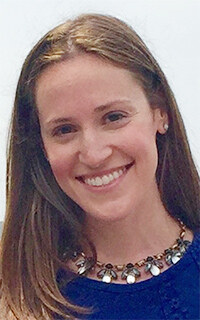
Reading is a critical skill and one of the most important goals of early schooling. This webinar will explore how to support young students as they learn to read. Participants will gain an understanding of how the brain reads, and some of the key components that are necessary for successful and fluent reading. A focus of the session will include practical strategies to support students both at home and in school.
Naomi Schimmel
Dr. Naomi Schimmel is the Head of Lower School at Shefa School. She has over ten years of experience working with children at a variety of levels and in different settings. Dr. Schimmel received her B.A. from The George Washington University and her Master’s Degree in Special Education from Hunter College. She earned her doctorate in Curriculum and Teaching from Fordham University. Dr. Schimmel began her career as a classroom teacher at the Churchill School, teaching second and fourth graders. Most recently she was a learning specialist at Riverdale Country School, where she provided differentiated instruction for students, implemented assessment models, and designed curriculum. Dr. Schimmel has supported teachers in enhancing their literacy instruction, and created professional development workshops for her colleagues. She has also taught a graduate course in the childhood education program at Fordham University.
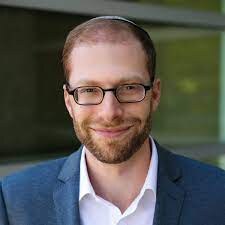
Too many of us dread giving feedback whether it be to our students or faculty. That changes with “feedforward,” a partnership approach to managing people and performance. Based on proven communication and coaching techniques, feedforward shifts the message and methods of traditional feedback through powerful, two-way conversation. Educators at all levels will become more skilled at developing a dialogue focused around their students’ and employees’ goals, growth, and long-term contribution. You will gain actionable insights into the neuroscience of effective feedback, and develop practical tools to recognize and develop the full potential of those with whom you work.
Joe Hirsch
Joe Hirsch specializes in helping schools and businesses master the art and science of high-performance feedback. An award-winning educator and instructional leader, Joe has spent more than a decade in the K-12 and higher-ed markets training, coaching and empowering teachers and school administrators to differentiate instruction, design project-based learning, and bolster student support. Based on his 2017 book, The Feedback Fix, Joe has shown clients like the Gates Foundation and members of the U.S. armed forces how to boost creativity, foster collaboration and deepen self-awareness. He’s a frequent keynote speaker, including at the 2017 Torah’ Umesorah Principal’s conference, a TEDx presenter, a columnist for Inc., and has appeared in publications like the Wall Street Journal, Educational Leadership, Edutopia, and other major outlets. Along with his wife and four boys, Joe lives (actually) in Dallas and (virtually) at www.joehirsch.me.

We all know that uncomfortable feeling – we have to have one of those uncomfortable conversations with our children or our students. Whether it is discussing substance use, challenging behaviors, dealing with peer pressure, family issues, loss and trauma, or substance abuse, it can be difficult to find the words, tone, and context. This webinar will consider how to set the stage for having meaningful and successful conversations even around difficult topics. You will learn about timing, language, the critical role of empathetic listening, and validation. Developmental issues as they impact how much we say to children of various ages will also be included.
Dr. Rona Novick
Rona Novick, PhD, Co-Educational Director of Hidden Sparks, is the Dean of the Azrieli Graduate School of Jewish Education and Administration at Yeshiva University and holds the Raine and Stanley Silverstein Chair in Professional Ethics and Values. She holds an appointment as Associate Clinical Professor of Child Psychology at North Shore-Long Island Jewish Medical Center.
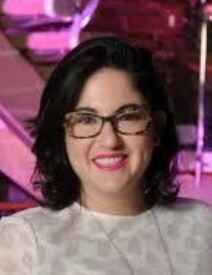
Many of us have heard about the Montessori approach but don’t know much about it, or don’t think that it’s applicable to a typical yeshiva classroom. This session will provide teachers with an understanding of the methodology and approaches presented by Montessori Education while adapting those methods and approaches into the framework of the traditional day school. The result is engaging, differentiated, and independent activities to build motivated, informed and independent learners in grades EC-2nd.
Yona Glass
Yona Glass has been a professional educator for over ten years. She received her undergraduate degree from Stern College, a Master’s Degree in Literacy from Hunter College, and Montessori Licensing from the North American Montessori Center. Yona teaches kindergarten at Manhattan Day School and is the Principal of The Polonies Talmud Torah School at the Spanish Portuguese synagogue, Congregation Shearith Israel and has presented at the Jewish Education Project’s (JEP) Annual Yeshiva Day School Day of Learning.

Are you looking to differentiate instruction to meet the diverse needs of your students Do you have concerns about it being too time consuming and complicated, or about it not being “fair”? In this webinar these concerns and obstacles to differentiation will be removed. You will walk away with a plethora of simple, low or no time ideas, strategies, modifications, and accommodation to empower you to support the success of all of your students.
Hollis Dannaham
Hollis Dannaham, M.Ed., has been empowering complex learners for 30 years as a learning specialist, special educator, reading specialist, administrator, and consultant in public, private, and charter schools. Hollis also worked as a learning specialist at the Student Success Center of All Kinds of Minds where she was deeply trained in the Neurodevelopment of Learning. Currently Hollis is the Learning Support Coordinator at The Middle Way School, a Senior Coach, Mentor, and Workshop Facilitator for Hidden Sparks, and an Adjunct Lecturer at SUNY New Paltz.

Are you looking to differentiate instruction to meet the diverse needs of your students Do you have concerns about it being too time consuming and complicated, or about it not being “fair”? In this webinar these concerns and obstacles to differentiation will be removed. You will walk away with a plethora of simple, low or no time ideas, strategies, modifications, and accommodation to empower you to support the success of all of your students.
Hollis Dannaham
Hollis Dannaham, M.Ed., has been empowering complex learners for 30 years as a learning specialist, special educator, reading specialist, administrator, and consultant in public, private, and charter schools. Hollis also worked as a learning specialist at the Student Success Center of All Kinds of Minds where she was deeply trained in the Neurodevelopment of Learning. Currently Hollis is the Learning Support Coordinator at The Middle Way School, a Senior Coach, Mentor, and Workshop Facilitator for Hidden Sparks, and an Adjunct Lecturer at SUNY New Paltz.

Reading comprehension involves a complex process of your student’s interaction with the texts that they read. This webinar will help you explore the differences between narrative (involving story grammar and causal events) and expository (focused on text organization and structure) text and the varied ways that you can teach the two. You will focus on effective strategies for teaching comprehension skills that are appropriate and beneficial for each type of text in grades 1-6.
Naomi Schimmel
Dr. Naomi Schimmel is the Head of Lower School at Shefa School. She has over ten years of experience working with children at a variety of levels and in different settings. Dr. Schimmel received her B.A. from The George Washington University and her Master’s Degree in Special Education from Hunter College. She earned her doctorate in Curriculum and Teaching from Fordham University. Dr. Schimmel began her career as a classroom teacher at the Churchill School, teaching second and fourth graders. Most recently she was a learning specialist at Riverdale Country School, where she provided differentiated instruction for students, implemented assessment models, and designed curriculum. Dr. Schimmel has supported teachers in enhancing their literacy instruction, and created professional development workshops for her colleagues. She has also taught a graduate course in the childhood education program at Fordham University.

This presentation will introduce you to the core social skills, communication tools, and conflict resolution techniques necessary to help students solve problems independently of teacher intervention. You will learn how to create socially safe classrooms with unified rules and expectations, integrate problem solving skills into daily lessons, discuss the importance of ‘seeking first to understand’, explore different problem solving models, and include parents in the appropriate scaffolding and support of students’ social development.
Zipora Schuck
Zipora Schuck, MA, MS, is the founder of Pathways Consulting Services LLC, an agency providing professional development services to teachers, principals, therapists and parents. She is a NYS Certified school psychologist holding masters degrees in both special education and school psychology. Mrs. Schuck is currently the Director of the Learning Center at the Beth Rochel School. She is a Catapult premium provider as well as a Torah Umesorah trainer whose popular workshops are usually standing room only! Additionally, she serves as adjunct faculty for Mercy College in their school of Education and Psychology.

Modern learning needs modern learning spaces. As we look to craft curriculum and instruction to prepare our students for further education and careers, it is essential that they have an opportunity to learn in spaces that support this mission. Designing excellent learning spaces isn’t about decorating, but it is about having intentionality. Prepare to leave with a variety of ideas and first steps that can be used to transform your space with very little budget.
Robert Dillon
Dr. Robert Dillon has served as a thought leader in education over the last twenty years as a teacher, principal, and director of innovation. He has had the opportunity to work with teachers and leaders throughout the country, and he continues to speak at local, regional, and national conferences. Dr. Dillon is the co-founder of ConnectED Learning, a Saint Louis non-profit dedicated to affordable, quality professional learning for teachers and is the author of four books on best practices in learning, Leading Connected Classrooms Engage, Empower, Energize: Leading Tomorrow’s Schools Today, Redesigning Learning Space, and his most recent book on learning space design called The Space: A Guide for Educators. Dr. Dillon has been honored by Common Sense Media, The Center for Green Schools, the dSchool at Stanford University, the Buck Institute for Education, and Future Ready Schools.

Many children have times when they struggle with homework. Understanding the challenges your child is facing can help you defuse homework battles before they start. From homework contracts to breaking down assignments, you will learn tips, strategies and resources to help you and your child establish good study habits and stop homework hassles before they begin.
Amanda Morin
Amanda Morin is a parent advocate and former teacher. She worked in classrooms and as an early intervention specialist for 10 years, providing education and training to parents of children with disabilities and leading multidisciplinary teams in developing and implementing Individual Family Service Plans. Since 2007, she has been working as an education writer and, more recently, as a parent advocate to empower parents and affirm the pivotal role they play in their child’s education. Morin received a bachelor’s degree in education from the University of Maine and special education advocacy training from the Council of Parent Attorneys and Advocates. She is the author of three books: The Everything Parent’s Guide to Special Education, The Everything Kids’ Learning Activities Book and On-the-Go Fun for Kids: More Than 250 Activities to Keep Little Ones Busy and Happy—Anytime, Anywhere!

The ability to run an ordered classroom is commonly ranked as one of the most important teacher dispositions, whether at the elementary, middle, or secondary grade level. We now know what tactics help students regulate emotions, engage them, and promote a pro-academic class culture. This webinar will introduce you to techniques gained from Dr. Finley’s experience teaching at an urban K-12 school, and will introduce abundant neuroscience and social science research related to classroom management. By adding new tools to your classroom management approach, this session will boost your effectiveness and confidence.
Todd Finley
Todd Finley, PhD, is a tenured professor of English Education at East Carolina University and a staff writer and assistant editor for Edutopia. He has taught elementary and 7-12th grade English, co-developed the Tar River Writing Project, and was selected as one of the Top 12 Global Teacher Bloggers of 2014 and again in 2016 by Cathy Rubin for the Huffington Post. Dr. Finley’s books include Dinkytown Braves and Rethinking Classroom Design—the latter co-written with Blake Wiggs. His education blog and free weekly education newsletter are available at www.todd-finley.com. Twitter: @finleyt

Positive self-esteem can make a big difference for children with learning disabilities and attention challenges. When children value themselves, they’re more likely to self-advocate and ask for the help they believe they deserve. When they’re confident and secure about who they are, they’re better able to face and manage their learning challenges. Learn practical strategies that can be used with your children and students to help them develop and maintain positive self-esteem.
Amanda Morin
Amanda Morin is a parent advocate and former teacher. She worked in classrooms and as an early intervention specialist for 10 years, providing education and training to parents of children with disabilities and leading multidisciplinary teams in developing and implementing Individual Family Service Plans. Since 2007, she has been working as an education writer and, more recently, as a parent advocate to empower parents and affirm the pivotal role they play in their child’s education. Morin received a bachelor’s degree in education from the University of Maine and special education advocacy training from the Council of Parent Attorneys and Advocates. She is the author of three books: The Everything Parent’s Guide to Special Education, The Everything Kids’ Learning Activities Book and On-the-Go Fun for Kids: More Than 250 Activities to Keep Little Ones Busy and Happy—Anytime, Anywhere!

Have you ever had a student who demonstrated strong verbal and thinking skills but when put to the task of independently reading and/or writing they can’t seem to succeed at the task? This could be the result of weak executive functions, a set of processes that involve mental control and self-regulation. In this webinar participants will not only gain a deeper understanding of the executive functions and how they impact reading and writing, but they will also walk away with interventions and strategies to help.
Hollis Dannaham
Hollis Dannaham, M.Ed., has been empowering complex learners for 30 years as a learning specialist, special educator, reading specialist, administrator, and consultant in public, private, and charter schools. Hollis also worked as a learning specialist at the Student Success Center of All Kinds of Minds where she was deeply trained in the Neurodevelopment of Learning. Currently Hollis is the Learning Support Coordinator at The Middle Way School, a Senior Coach, Mentor, and Workshop Facilitator for Hidden Sparks, and an Adjunct Lecturer at SUNY New Paltz.
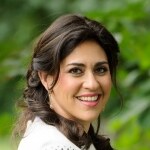
We all know that being able to concentrate and focus for sustained periods is a skill that students need to develop in order to be successful in school. Fortunately, teachers and parents can teach and implement strategies that will help encourage and build this ability in children. In this webinar, you will gain a deeper understanding and a wealth of strategies for supporting your students in this skill.
Mindy Rosenthal
Mindy Rosenthal, M.S., BCBA, is the resource director at Ilan High School and an adjunct professor at Daemen College. Her private practice, Behavior & Educational Consulting (BEC), specializes in the remediation of social skill deficits in children, adolescents and adults with ASD, ADHD, and other verbal and non-verbal learning disabilities. Mindy serves as consultant to various New York and New Jersey schools, devising and implementing social skills and behavioral programs, as well as training parents and teachers.

Teachers have to teach Chumash skills to diverse learners, so one-size-fits-all strategies do not always work. In this practical and creative workshop, learn about ways of teaching all of your students the skills they need to master the Chumash lesson, ways to check for understanding, and tips that turn the daily lesson into a course that leaves children of all levels engaged and enthusiastic. Mrs. Siegel will share the energizing techniques she has used in her own classroom and has brought to countless classrooms across the tri-state and beyond.
Etti Siegel
Mrs. Etti Siegel holds a MS in Teaching and Learning/Educational Leadership and brings sound teaching advice to her audiences culled from her over 30 years of teaching and administrative experience. Etti spent four years as an Adjunct Professor at Aspen University and is now an Adjunct at Concordia College of NY. She is a coach and educational consultant for educational coaching agencies such as Catapult and HigherSchools, is a sought after mentor and workshop presenter around the country, and a popular presenter for Sayan (a teacher mentoring program), Yachad/OU, and the Consortium of Jewish Day Schools.
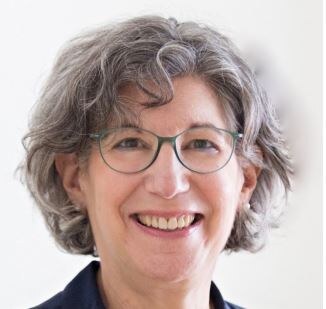
If you have discovered that your child has difficulties with learning or paying attention, or you are beginning to suspect that he or she does, you might be wondering what you can do to make sure that your child is getting the best support possible at school. Even though we may know each of our child’s strengths and challenges, as parents we sometimes feel powerless when it comes to push for the resources our child needs to succeed. There is actually a lot we can do to take action, and this webinar will provide with the basics for being strong advocates on behalf of your child.
Susan Schwartz
Susan J. Schwartz, MA Ed, is a learning specialist at the Child Mind Institute. She is an expert in child development, reading and literacy, learning disorders, and the development of language skills and higher-level reasoning skills in children and adolescents. She has been on the forefront of interdisciplinary approaches to evaluating and treating children and young adults with reading, writing, math and organizational difficulties, and has taught cognitive and language development as well as neuropsychology and advocacy to psychiatry trainees, and supervised psychology interns and postdoctoral neuropsychology fellows. A seasoned lecturer, Ms. Schwartz has presented at conferences nationwide on a wide range of topics, including learning differences versus learning disorders, understanding autism spectrum disorders, the myths and realities of standardized tests, and demystifying neuropsychological and educational reports.

Neuroscientists and educators have carefully studied how the introduction, proliferation, and extensive usage of technology are impacting how children think and learn. This HSWOW session will share the latest findings to help parents and educators understand the way today’s children think and learn. Suggestions for creating healthy habits of technology use and for adapting our adult teaching and parenting strategies to best fit the changing minds of our technologically savvy children.
Neuroscientists and educators have carefully studied how the introduction, proliferation, and extensive usage of technology are impacting how children think and learn. This HSWOW session will share the latest findings to help parents and educators understand the way today’s children think and learn. Suggestions for creating healthy habits of technology use and for adapting our adult teaching and parenting strategies to best fit the changing minds of our technologically savvy children.
Dr. Rona Novick
Rona Novick, PhD, Co-Educational Director of Hidden Sparks, is the Dean of the Azrieli Graduate School of Jewish Education and Administration at Yeshiva University and holds the Raine and Stanley Silverstein Chair in Professional Ethics and Values. She holds an appointment as Associate Clinical Professor of Child Psychology at North Shore-Long Island Jewish Medical Center.
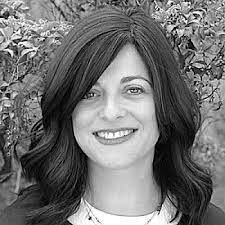
In this webinar, we will explore the who, what, where, when, why, and how of separation anxiety. Educators and parents alike will learn a proactive, strategy-based approach to utilize for a host of separation situations and consider the vast opportunities for life-skill development during separation. Upon completion, attendees will have the necessary tools to become empowered to turn the “goodbye blues” into the “Yippee-Yahoos”!
Randi Goldfarb
Randi Goldfarb, Founder and President of Zak & Nat™ (a division of Proactive Connections, LLC) is a seasoned Licensed Clinical Social Worker, published children’s book author, dedicated preschool teacher, mother of two spirited boys, and the creator of the Keep Calm Kit™. She is an impassioned problem-solver with a keen ability to focus on proactive based solutions, which are an integral part of the workshops and trainings that she delivers in preschool settings. Randi focuses on empowering educators, caregivers and children to connect and stay connected, by creatively building social-emotionalskills, thus improving communication skills for everyone.Like most of us, Randi has little time to spare, but when she can, she loves to ride her bike or go for a brisk walk/run to keep the adrenaline flowing, trying to solve another challenge, as she is inspired by the beauty and potential around her.

Every child will face challenges, whether because of their own learning profile or temperament, or outside factors such as illness, family stress, and tragic events. Even seemingly mundane bumps in the road, such as a lost ballgame, failed test, or waning friendship, require children to be resilient, to manage even when life is not how you would want it to be. Resilience is supported by a set of teachable skills that parents and teachers can help children develop. This webinar discusses those skills and the strategies that can help children use them as tools throughout their lives.
Dr. Rona Novick
Rona Novick, PhD, Co-Educational Director of Hidden Sparks, is the Dean of the Azrieli Graduate School of Jewish Education and Administration at Yeshiva University and holds the Raine and Stanley Silverstein Chair in Professional Ethics and Values. She holds an appointment as Associate Clinical Professor of Child Psychology at North Shore-Long Island Jewish Medical Center.
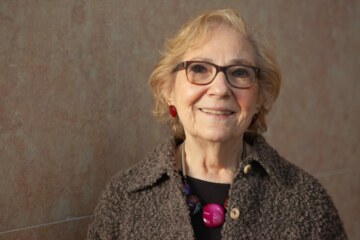
Language influences every aspect of the curriculum, affecting the way children learn and teachers teach. This webinar will focus on the role language plays in learning, including decoding and comprehension, vocabulary and concept knowledge, thinking and reasoning, narrative development, writing and social skills. Participants will learn techniques and strategies for enhancing language learning in the classroom.
Claire Wurtzel
Claire Wurtzel, MS, Co-Educational Director of Hidden Sparks, recently retired as the Director of Faculty Development for the Churchill School and Center in New York. Prior to this position, Ms. Wurtzel was the Director of Faculty Development for the New York City Schools Attuned initiative for All Kinds of Minds, an institute co-founded by Dr. Mel Levine and Charles Schwab to help educators work effectively with struggling learners. In her capacity as Director, she oversaw Schools Attuned courses, mentor training and facilitator training for over 400 New York City schools.
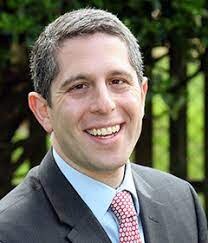
Are you exhausted from managing every assignment? From solving every conflict? From never having time to yourself? We all want our children to be happy, successful, and well-supported, but it’s hard to know how much to be involved in our children’s lives – and when to step back. This workshop will help you think about how to find the right balance for your family between giving your children the space they need to become self-reliant and still making sure that they are able to cope with the challenges of today’s world.
Dr. Yoni Schwab
Yoni Schwab, PhD, is the founding assistant head of school at the Shefa School, a Jewish day school in New York City for children with language-based learning disabilities. A clinical psychologist, Yoni earned his doctorate in clinical psychology at Rutgers University and served as the Psychologist at The Windward School and on the faculty of the Windward Teacher Training Institute. He is an Adjunct Clinical Supervisor at Ferkauf Graduate School of Yeshiva University and has had successful private clinical practices in Riverdale and Scarsdale. Yoni conducts research, consults, and lectures extensively on social-emotional learning, progressive behavior management, and raising the achievement of students with behavioral and learning challenges. He serves on the Expert Panel of Parents.com, the website of Parents Magazine.
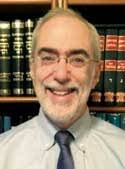
Help your students and children find their own meaning in tefilla and establish stronger connections to their davening. During this webinar you will gain a better understanding of the development of prayer in children and adolescents and be provided with some practical strategies for enabling students to find their own voice, all within the context of using the texts of the Siddur.
Rabbi Jay Goldmintz
Rabbi Dr. Jay Goldmintz teaches Tanach and Jewish philosophy at Ma`ayanot Yeshiva High School in Teaneck, NJ. Before that, he was a teacher and administrator at Ramaz School in New York City for over 30 years. He received his ordination from Yeshiva University where he also received his doctorate which focused on the dynamics of religious parenting and where he serves as an adjunct in the doctoral program of the Azrieli Graduate School. He is the author of the Koren Ani Tefilla Weekday Siddur: A Siddur of Reflection, Connection and Learning, winner of the 2014 National Jewish Book Award, as well as the companion Ani Tefillah Shabbat Siddur. He also serves as Educational Director of the Legacy 613 Foundation Tefilla Project.

Current cognitive research has shown that there are three specific nonacademic skills that are essential for student success. In this workshop participants will learn about the research on Grit, Growth Mindset, and Motivation and how this information can be translated into classroom practice to facilitate these skills and maximize student success.
Hollis Dannaham
Hollis Dannaham, M.Ed., has been empowering complex learners for 30 years as a learning specialist, special educator, reading specialist, administrator, and consultant in public, private, and charter schools. Hollis also worked as a learning specialist at the Student Success Center of All Kinds of Minds where she was deeply trained in the Neurodevelopment of Learning. Currently Hollis is the Learning Support Coordinator at The Middle Way School, a Senior Coach, Mentor, and Workshop Facilitator for Hidden Sparks, and an Adjunct Lecturer at SUNY New Paltz.

This webinar will provide you with crucial information regarding the technology that our children are accessing. While a healthy exposure to technology is beneficial, we also want to recognize the risks and possible pitfalls that are present. In addition, this presentation will inform you of the ins and outs of many popular apps so that you can feel up to date on tools your children might be logging on to.
Rabbis Efrayim Clair and Dov Hochbaum
Rabbi Dov Hochbaum and Rabbi Efrayim Clair are full-time educational technologists at the Rosenbaum Yeshiva of North Jersey. Their mission is to help teachers become better educators by empowering them to reach every student and shine a light on best practices in technology and education.
They work with both Judaic and General Studies teachers in grades K-8 to maximize the learning for all students. They also work side by side with the administration to help facilitate and streamline the school’s technology as a whole.

Tests and quizzes are part and parcel of almost every learning environment, and information gleaned from assessment goes far beyond the letter or number grade. Teachers will learn how to use assessment information to effectively direct instruction both for the class and for individual students. This interactive workshop will help build your skills so that you can facilitate instruction for real student retention, teach study and test taking skills, use formative and summative assessments, and design alternatives to testing.
Zipora Schuck
Zipora Schuck, MA, MS, is the founder of Pathways Consulting Services LLC, an agency providing professional development services to teachers, principals, therapists and parents. She is a NYS Certified school psychologist holding masters degrees in both special education and school psychology. Mrs. Schuck is currently the Director of the Learning Center at the Beth Rochel School. She is a Catapult premium provider as well as a Torah Umesorah trainer whose popular workshops are usually standing room only! Additionally, she serves as adjunct faculty for Mercy College in their school of Education and Psychology.

Many people think the words “tantrum” and “meltdown” mean the same thing, and they can look very similar when you see a child having one. But for children with sensory processing or self-regulation challenges, a meltdown is very different from a tantrum. This webinar, in partnership with Understood.org will help you understand the differences and will provide you with strategies so that you can respond in a way that better supports your child.
Amanda Morin
Amanda Morin is a parent advocate and former teacher. She worked in classrooms and as an early intervention specialist for 10 years, providing education and training to parents of children with disabilities and leading multidisciplinary teams in developing and implementing Individual Family Service Plans. Since 2007, she has been working as an education writer and, more recently, as a parent advocate to empower parents and affirm the pivotal role they play in their child’s education. Morin received a bachelor’s degree in education from the University of Maine and special education advocacy training from the Council of Parent Attorneys and Advocates. She is the author of three books: The Everything Parent’s Guide to Special Education, The Everything Kids’ Learning Activities Book and On-the-Go Fun for Kids: More Than 250 Activities to Keep Little Ones Busy and Happy—Anytime, Anywhere!

How can we use the science and knowledge of human behavior to support our children in all areas? This webinar will address myths about rewards and punishments and offer suggestions regarding motivating rewards that have No Salt, No Sugar, and Cost No Money.
Dr. Rona Novick
Rona Novick, PhD, Co-Educational Director of Hidden Sparks, is the Dean of the Azrieli Graduate School of Jewish Education and Administration at Yeshiva University and holds the Raine and Stanley Silverstein Chair in Professional Ethics and Values. She holds an appointment as Associate Clinical Professor of Child Psychology at North Shore-Long Island Jewish Medical Center.

Get off to a strong start this year when it comes to classroom management. This workshop will cover specific strategies, procedures, and teaching techniques to effectively prevent classroom disruptions and allow for effective teaching.
Mindy Rosenthal
Mindy Rosenthal, M.S., BCBA, is the resource director at Ilan High School and an adjunct professor at Daemen College. Her private practice, Behavior & Educational Consulting (BEC), specializes in the remediation of social skill deficits in children, adolescents and adults with ASD, ADHD, and other verbal and non-verbal learning disabilities. Mindy serves as consultant to various New York and New Jersey schools, devising and implementing social skills and behavioral programs, as well as training parents and teachers.

Today’s culture of entitlement and privilege erodes our natural inclinations towards gratitude. This webinar will provide information on many benefits of gratitude, and offer direct strategies to inculcate the attitude of gratitude in families and schools. The developmental challenges across childhood, pre-teen, and adolescent years will be carefully considered.
Dr. Rona Novick
Rona Novick, PhD, Co-Educational Director of Hidden Sparks, is the Dean of the Azrieli Graduate School of Jewish Education and Administration at Yeshiva University and holds the Raine and Stanley Silverstein Chair in Professional Ethics and Values. She holds an appointment as Associate Clinical Professor of Child Psychology at North Shore-Long Island Jewish Medical Center.
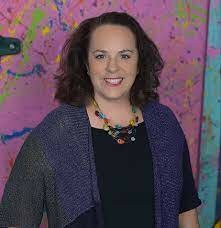
Do you suspect that your student’s reaction to sights, sounds, or touch is over the top? Does your student have trouble tuning in at circle time, maintaining personal space, or transitioning smoothly? This webinar will focus on the unique sensory challenges that surface in school. Participants will come away with practical and effective strategies targeted to individual students and the classroom as a whole to help children modulate their behavior and thrive socially.
Chaye Lamm Warburg
Chaye Lamm Warburg, DPS, OTR/L, is the founder and director of Pediatric Occupational Therapy Services in Teaneck, NJ. She is certified in the Sensory Integration & Praxis Tests, Interactive Metronome, Therapeutic Listening, The Listening Program®, and MEDEK, and is trained in Floortime. She lectures extensively to parents, teachers and therapists and teaches a pediatric occupational therapy lab to MA students at NYU. She believes in a two pronged approach to treating children with sensory processing dysfunction (SPD): providing strategies to help the child (and parent) survive day to day, coupled with intense in-office therapy to eliminate or minimize the underlying problems.
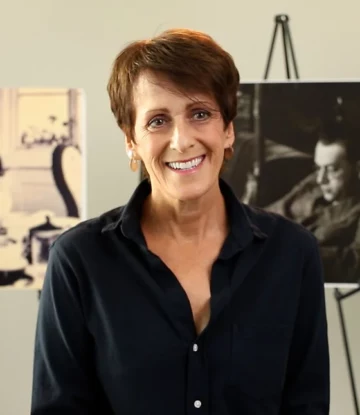
When most people are asked “What is dyslexia?” the typical response is “Isn’t that when you reverse your letters and numbers?” It’s a common misconception and one that we will address in this webinar. We will consider what dyslexia is and what it isn’t and what are some of the remarkable strengths that may accompany this language based learning difference. We’ll also describe some of the latest research on dyslexia and see what are effective interventions and accommodations.
Karen Kruger
Karen Kruger, MS, is the Director of Curriculum & Professional Development at the Charles Armstrong School in California, a school that serves children with language based learning disabilities. Prior to that position, Ms. Kruger was the Director of Education at Hidden Sparks, and served as Hidden Sparks’ Internal Coach Program school- based mentor, a regional facilitator, and the lead trainer for Title funded workshops. Ms. Kruger also served as a field facilitator and course instructor for Schools Attuned, teaching courses offered by All Kinds of Minds, developed curricula for workshops, and mentored and supervised teachers in grades K-12. A former adjunct professor at Bank Street College of Education, where she received her Master’s degree, Ms. Kruger has taught in elementary and middle schools.

As a teacher or parent, are you confused by children who seem very capable, yet have difficulty concentrating, sitting still and listening, or finishing something they start- unless it’s very exciting? Do you find they have the ability to concentrate well on some things but not others? We tell them to ” pay attention “, but they can’t seem to always look or listen to the right thing at the right time. In this session you will learn about attention- the complex system of brain controls that energizes us and regulates our thinking and our ability to complete tasks- and strategies to support children who struggle in this area.
As a teacher or parent, are you confused by children who seem very capable, yet have difficulty concentrating, sitting still and listening, or finishing something they start- unless it’s very exciting? Do you find they have the ability to concentrate well on some things but not others? We tell them to ” pay attention “, but they can’t seem to always look or listen to the right thing at the right time. In this session you will learn about attention- the complex system of brain controls that energizes us and regulates our thinking and our ability to complete tasks- and strategies to support children who struggle in this area.
Claire Wurtzel
Claire Wurtzel, MS, Co-Educational Director of Hidden Sparks, recently retired as the Director of Faculty Development for the Churchill School and Center in New York. Prior to this position, Ms. Wurtzel was the Director of Faculty Development for the New York City Schools Attuned initiative for All Kinds of Minds, an institute co-founded by Dr. Mel Levine and Charles Schwab to help educators work effectively with struggling learners. In her capacity as Director, she oversaw Schools Attuned courses, mentor training and facilitator training for over 400 New York City schools.
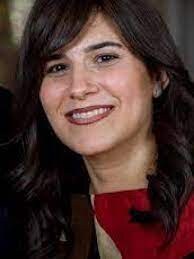
What neurodevelopmental demands are made on a child when we ask them to find and put their finger on the place in a Chumash , read and translate a Pasuk? What strategies can be employed for students who have challenges in attention, memory, language or other areas of neurodevelopment? In this webinar, you will learn to analyze and design your Judaic Studies lessons using a neurodevelopmental lens allowing for maximal success for all your students.
Tamar Bauman
Tamar Bauman, a psychologist, works as a Hidden Sparks coach in two Jewish day schools. She has experience in both mental health and school psychology. She has worked for Long Island Jewish Medical Center’s On-site School Program for Mental Health helping children and their families with a range of behavioral and emotional issues. Dr. Bauman also has expertise leading social skills groups and has organized a social skills curriculum for elementary school students.
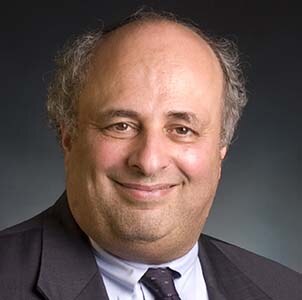
This webinar will focus on practical strategies for helping parents of adolescents find the balance between love and limits in effectively parenting their teen. Current thinking about adolescent development will be discussed with an emphasis on new findings from the fields of neuroscience and developmental psychology. How parents can differentiate between minor irritants and more serious problems that might warrant professional attention will be presented as well as practical recommendations on how parents can effectively deal with common adolescent behavioral problems.
David Pelcovitz
Dr. David Pelcovitz holds the Gwendolyn and Joseph Straus Chair in Psychology and Jewish Education at the Azrieli Graduate School of Jewish Education and Administration at Yeshiva University. Serving for more than two decades as director of psychology at North Shore University Hospital-NYU School of Medicine and clinical professor of psychology at NYU School of Medicine, Dr. Pelcovitz has consulted, published and lectured extensively on a wide range of issues facing children, adolescents and Jewish families. Areas of research and clinical specialty include family violence, the impact of domestic violence, stress management, transmitting values to children and adolescents and coping with trauma and loss. His most recent publication was Balanced Parenting, a book he wrote in collaboration with his father, Rabbi Raphael Pelcovitz, on parenting from a Jewish perspective.

The results of ground-breaking brain research now play a role in early detection of future math learning disabilities allowing for targeted early intervention. This workshop will look at the spatial ordering system which governs qualitative number sense, how challenges manifest in the classroom and what strategies can be employed to support struggling students. We will also touch on how parts of memory, higher order cognition, language, and executive functions can affect performance in math, along with tools for intervention.
Hollis Dannaham
Hollis Dannaham, M.Ed., has been empowering complex learners for 30 years as a learning specialist, special educator, reading specialist, administrator, and consultant in public, private, and charter schools. Hollis also worked as a learning specialist at the Student Success Center of All Kinds of Minds where she was deeply trained in the Neurodevelopment of Learning. Currently Hollis is the Learning Support Coordinator at The Middle Way School, a Senior Coach, Mentor, and Workshop Facilitator for Hidden Sparks, and an Adjunct Lecturer at SUNY New Paltz.

Do your students have trouble taking notes effectively? Are their notes acting as study tools? Become a game-changer in the life of your students! This webinar will help you simplify and effectively give instruction for the use of guided notes, Cornell notes, and two column note- taking. The webinar will also include mnemonic and review strategies that will turn student notes into study tools, and listening and summarizing techniques into effective communication tools for life.
Zipora Schuck
Zipora Schuck, MA, MS, is the founder of Pathways Consulting Services LLC, an agency providing professional development services to teachers, principals, therapists and parents. She is a NYS Certified school psychologist holding masters degrees in both special education and school psychology. Mrs. Schuck is currently the Director of the Learning Center at the Beth Rochel School. She is a Catapult premium provider as well as a Torah Umesorah trainer whose popular workshops are usually standing room only! Additionally, she serves as adjunct faculty for Mercy College in their school of Education and Psychology.

Do some of your students jump from one activity to another while others are so persistent that they have a hard time transitioning? Do you like to introduce new activities into your lessons but find that some of your students are hesitant or resistant? Based on the research of Stella Chess and Alexander Thomas, there are nine innate temperament traits that can affect a child’s behavior in the classroom and in life. In this workshop you will learn what these temperaments are and the five components of classroom ecology that you can adjust to better support your students.
Hollis Dannaham
Hollis Dannaham, M.Ed., has been empowering complex learners for 30 years as a learning specialist, special educator, reading specialist, administrator, and consultant in public, private, and charter schools. Hollis also worked as a learning specialist at the Student Success Center of All Kinds of Minds where she was deeply trained in the Neurodevelopment of Learning. Currently Hollis is the Learning Support Coordinator at The Middle Way School, a Senior Coach, Mentor, and Workshop Facilitator for Hidden Sparks, and an Adjunct Lecturer at SUNY New Paltz.

Teaching adolescents presents challenges and opportunities. When educators understand adolescent development, and appreciate teens’ approach to learning, their belief systems, their notions about rules and authority, and their passion for meaning and belonging, they can increase the effectiveness of their teaching. Learn to harness teens’ strengths to support the remarkable learning and growth for which teens and educators alike yearn.
Dr. Rona Novick
Rona Novick, PhD, Co-Educational Director of Hidden Sparks, is the Dean of the Azrieli Graduate School of Jewish Education and Administration at Yeshiva University and holds the Raine and Stanley Silverstein Chair in Professional Ethics and Values. She holds an appointment as Associate Clinical Professor of Child Psychology at North Shore-Long Island Jewish Medical Center.

This webinar will explore anxiety and the forms it takes in children and teens. Causes and situationally specific anxiety, such as test anxiety and speaking anxiety will be discussed. Strategies for parents and teachers to help those children and teens who struggle with anxiety will be offered, as well as metacognitive approaches that children and teens can learn to self-regulate their worries.
Dr. Rona Novick
Rona Novick, PhD, Co-Educational Director of Hidden Sparks, is the Dean of the Azrieli Graduate School of Jewish Education and Administration at Yeshiva University and holds the Raine and Stanley Silverstein Chair in Professional Ethics and Values. She holds an appointment as Associate Clinical Professor of Child Psychology at North Shore-Long Island Jewish Medical Center.

This webinar is geared to help teachers use effective communication to solve common classroom challenges. Strategies to increase student participation and clarity of expressive language will be modeled. This webinar will also offer numerous techniques to empower teachers to reflect, validate, and reduce emotionality of student responses.
Zipora Schuck
Zipora Schuck, MA, MS, is the founder of Pathways Consulting Services LLC, an agency providing professional development services to teachers, principals, therapists and parents. She is a NYS Certified school psychologist holding masters degrees in both special education and school psychology. Mrs. Schuck is currently the Director of the Learning Center at the Beth Rochel School. She is a Catapult premium provider as well as a Torah Umesorah trainer whose popular workshops are usually standing room only! Additionally, she serves as adjunct faculty for Mercy College in their school of Education and Psychology.

This workshop will explore the various aspects of self-esteem with practical and research based strategies for building genuine self-worth. Redefining a child’s image, training them in an “optimistic explanatory style”, and priming them for success are some techniques that will be covered. This webinar will also address avoiding the common pitfalls of, perfectionist thinking, mental filtering, and mistaking feelings for facts.
Mindy Rosenthal
Mindy Rosenthal, M.S., BCBA, is the resource director at Ilan High School and an adjunct professor at Daemen College. Her private practice, Behavior & Educational Consulting (BEC), specializes in the remediation of social skill deficits in children, adolescents and adults with ASD, ADHD, and other verbal and non-verbal learning disabilities. Mindy serves as consultant to various New York and New Jersey schools, devising and implementing social skills and behavioral programs, as well as training parents and teachers.

Do you suspect that your child’s over-reaction to sights, sounds, touch, or crowds is over the top? Does it seem like your child doesn’t tune in to what is going on around him/her? Does your child violate personal space, resist change and transition poorly? Have difficulty learning a sport or shy away from playground equipment? Welcome! This webinar will focus on the unique sensory challenges that arise at home. Participants will come away with specific strategies designed to modulate children’s responses to sensory input, regulate their behavior and boost motor planning. Learn how to select practical and effective activities you can use immediately to target your child’s unique challenges and capitalize on his/her strengths.
Chaye Lamm Warburg
Chaye Lamm Warburg, DPS, OTR/L, is the founder and director of Pediatric Occupational Therapy Services in Teaneck, NJ. She is certified in the Sensory Integration & Praxis Tests, Interactive Metronome, Therapeutic Listening, The Listening Program®, and MEDEK, and is trained in Floortime. She lectures extensively to parents, teachers and therapists and teaches a pediatric occupational therapy lab to MA students at NYU. She believes in a two pronged approach to treating children with sensory processing dysfunction (SPD): providing strategies to help the child (and parent) survive day to day, coupled with intense in-office therapy to eliminate or minimize the underlying problems.
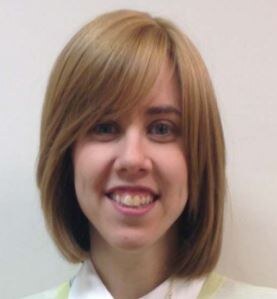
What do we expect from our students when teaching Rashi in the elementary school classroom? What demands and expectations are built into a child’s decoding and comprehension of Rashi and where are the breakdowns for children who struggle? This webinar examines the neuro-developmental systems that students need in order to be successful in reading and understanding Rashi. It suggests ways to reach more of our students and provides strategies to help the children who struggle.
Sara Chaya Farbstein
Sara Chaya Farbstein, PhD, is assistant principal at Bais Yaakov of the East Side and a Hidden Sparks coach and workshop presenter. She also serves as a full-time instructor at Daemen College and teaches courses in literacy instruction for students with disabilities. She has a passion for reading instruction and for bringing the best of educational practices to reach all students in the Judaic Studies classroom. Mrs. Farbstein earned her master’s degree at Touro College and her doctorate degree from Capella University, and is certified in general and special education.

If he is so bright, why does he struggle with keeping his materials organized? How can it be that she knows all the answers when I call on her but doesn’t pass a test? Why does he keep bothering his peers and then get upset when no one wants to play with him? This webinar will begin to answer these questions and present strategies so that you can help children like this stay focused, control their impulses, and keep themselves organized so they can be successful academically and socially.
Mindy Rosenthal
Mindy Rosenthal, M.S., BCBA, is the resource director at Ilan High School and an adjunct professor at Daemen College. Her private practice, Behavior & Educational Consulting (BEC), specializes in the remediation of social skill deficits in children, adolescents and adults with ASD, ADHD, and other verbal and non-verbal learning disabilities. Mindy serves as consultant to various New York and New Jersey schools, devising and implementing social skills and behavioral programs, as well as training parents and teachers.

This webinar designed to give parents tips, tools and strategies to transform the homework experience. Using organizational ideas, life skill lessons, empathy, understanding, and creativity – parents will be able to help both themselves and their children successfully and more calmly get through daily homework.
Zipora Schuck
Zipora Schuck, MA, MS, is the founder of Pathways Consulting Services LLC, an agency providing professional development services to teachers, principals, therapists and parents. She is a NYS Certified school psychologist holding masters degrees in both special education and school psychology. Mrs. Schuck is currently the Director of the Learning Center at the Beth Rochel School. She is a Catapult premium provider as well as a Torah Umesorah trainer whose popular workshops are usually standing room only! Additionally, she serves as adjunct faculty for Mercy College in their school of Education and Psychology.
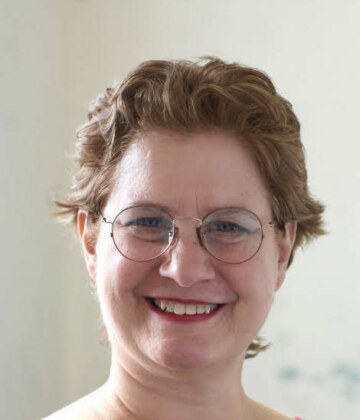
An important goal of education is to help children become readers. Summer is a perfect time to help children experiences the pleasures and benefits of reading. This webinar explores what parents can do at home to support and cultivate the joy of reading.
Elizabeth Fox
Elizabeth Fox, Ed.M., is the Director of Education of Hidden Sparks. Through the Education Alliance at Brown University she has designed workshops for teachers in all subject areas to deepen their understanding of reading processes. Elizabeth has also designed and taught a course in the teaching of reading for graduate students at Teachers College, Columbia University.
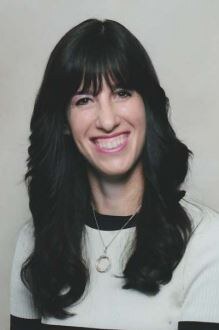
Guided Reading, a teaching approach used with a small group of students, is designed to help individual students read increasingly challenging texts over time. This webinar will focus on the specific elements of a guided reading lesson. Participants will learn how to use meaning, language structure, and visual phonic cues (the three cueing systems) to assist students in successfully engaging with texts. Practical examples of guided reading lessons utilizing various level texts will be explored.
Hadassah Berg
Hadassah (Dassi) Berg, Ed.D, a literacy specialist in private practice, provides teacher training in literacy to schools and organizations. She also serves as an adjunct professor at Mercy College and as a consultant, program developer and adjunct professor at Daemen College. Previously, Dr. Berg worked in the New York City public schools as a special education teacher and staff developer. Dr. Berg earned her master’s degree and doctorate degree in special education from Teachers College, Columbia University, and is certified in school administration and supervision.
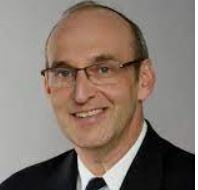
For twelve and thirteen year olds with learning differences and disabilities, the preparation for bar and bat mitzvah can be more stressful than joyous. For some, a learning process focused on Hebrew decoding, memorizing and speech writing can be an obstacle. For others, the celebration, often marked in the context of a “packed” synagogue on a Shabbat morning, can be terrifying. This webinar will help you prepare for this important life cycle event by tapping into your child’s interests and strengths, and introducing approaches such as adaptive technologies, music and art to help make the process more enjoyable for all.
Howard Blas
Howard Blas, MA, MSW, is the Director of the Tikvah Program at Camp Ramah in New England, providing camping and vocational experiences for young adults with special needs. He is also a consultant on special needs camping programs for the National Ramah Commission and is a Jewish studies and bar/bat mitzvah teacher for students with special needs. He holds masters degrees in social work and special education. Howard is a contributor to the Connecticut Jewish Ledger, the Jerusalem Post, DASH, the Times of Israel and Babaganewz. His work has also appeared in The New York Times, Time Out New York and various parenting publications and professional journals. Howard received the S’fatai Tiftakh Award from Boston Hebrew College and the 2013 Covenant Foundation Award for Excellence in Jewish Education.

This webinar provides a practical overview to the Collaborative Problem Solving approach to working with children who lack the skill to behave well. All children, parents and teachers want to do well. But even with the best intentions, unpleasant confrontations may arise at home or in school with children who have social, emotional and behavioral challenges. These children can be exasperating to parents, and teachers who are involved in dealing with the consequences of children’s inability to meet expectations.
Claire Wurtzel
Claire Wurtzel, MS, Co-Educational Director of Hidden Sparks, recently retired as the Director of Faculty Development for the Churchill School and Center in New York. Prior to this position, Ms. Wurtzel was the Director of Faculty Development for the New York City Schools Attuned initiative for All Kinds of Minds, an institute co-founded by Dr. Mel Levine and Charles Schwab to help educators work effectively with struggling learners. In her capacity as Director, she oversaw Schools Attuned courses, mentor training and facilitator training for over 400 New York City schools.

It’s never too late to become more organized! By this point in the school year teachers have covered large amounts of curriculum and students have progressed in many academic areas. However, many of these same children have difficulty maturing in regards to organizing themselves, their time, their books, and their belongings. This webinar will offer teachers practical classroom based strategies to help children master systems, routines, schedules, and ‘their stuff’ throughout the school day.
Zipora Schuck
Zipora Schuck, MA, MS, is the founder of Pathways Consulting Services LLC, an agency providing professional development services to teachers, principals, therapists and parents. She is a NYS Certified school psychologist holding masters degrees in both special education and school psychology. Mrs. Schuck is currently the Director of the Learning Center at the Beth Rochel School. She is a Catapult premium provider as well as a Torah Umesorah trainer whose popular workshops are usually standing room only! Additionally, she serves as adjunct faculty for Mercy College in their school of Education and Psychology.
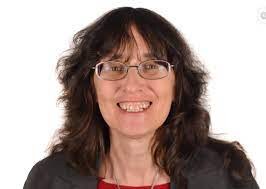
Do you try to avoid threats, bribes, and punishments, but find yourself using them anyway, just to survive the day? Join us for a webinar with parenting expert Joanna Faber and learn how to help your child cope with difficult feelings, engage your child’s cooperation without sacrificing good will, and resolve conflicts without punishment. You’ll come away with new skills you can use immediately to make your life with children easier and more satisfying.
Joanna Faber
Joanna Faber, MS, is the daughter of Adele Faber, internationally acclaimed, best-selling author of many parenting books. Joanna received her master’s degree in Education from Lehman College and went on to teach at PS 161 in West Harlem. She is the recipient of an outstanding teacher award from City College. She lectures on communication skills and conducts workshops around the country based on her mother’s work and her own extensive experience. She contributed heavily to Faber and Mazlish’s most recent, award winning
book How To Talk So Kids Can Learn – at Home and in School, and wrote a new section, “The Next Generation”, for the 30th Anniversary Edition of How To Talk So Kids Will Listen & Listen So Kids Will Talk.
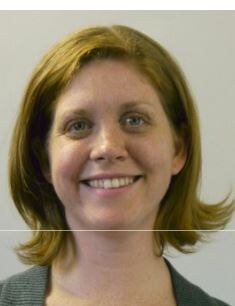
Part 2 of 3 – for elementary school age
Not all screen time is created equally. Some screen time for young children can be harmful and other uses of technology can help young learners expand their critical and creative skills. Participants in this webinar will learn how to distinguish between passive and active uses of screen time and develop a toolkit of resources to use with young children.
Jeannie Crowley
Jeannie Crowley, MA, MS, is the Manager of Digital Media and Learning at Bank Street College. Her background includes years as a K-12 Special Education teacher and teacher trainer in the Bronx. With master’s degrees in both Elementary Education and Digital Media Design and Learning, she works with educators to create innovative, constructivist digital learning experiences for students. She was awarded the Samsung Hope for Education and the ING Unsung Heroes awards for her work with young children and technology.
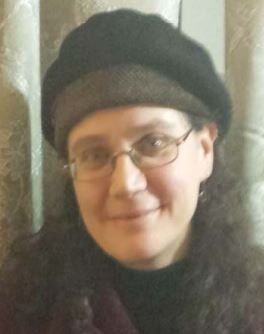
Ever wonder about how to encourage and support your child’s motivation? Is there a possibility that your child will do her chores without nagging or his homework without needling? In this webinar we will explore the differences between extrinsic and intrinsic motivation. We will discuss strategies for increasing intrinsic motivation and techniques to evaluate the effectiveness of the external reinforcers, such as praise, behavior charts, rewards and punishments that parents and teachers often utilize.
Meryl Silver
Meryl Silver, MS.Ed, received her bachelor’s degree in early childhood education from Queens College and holds a master’s degree in special education from Bank Street College ofEducation. Meryl is currently the Project Coordinator for the Teach NYS High School Academic Resource Center which assists high school students with learning differences secure publicly funded services. She has close to 15 years of teaching experience, including four years as a resource room teacher at Yeshiva Har Torah and three years as a learning specialist for P’tach at the Yeshiva University High School for Girls. Meryl has also worked as a co-facilitator for Schools Attuned and is a graduate of the SAFDA program and has also served as a Hidden Sparks External Coach at the Yeshiva of Central Queens and Shaare Torah Elementary School for boys.

Part 1 of 3 – for young children
In today’s technology-enhanced world, there are many options available for our children: children’s shows, apps, movies on Netflix and more. Participants in this webinar will learn about the effects (both positive and harmful) of screen time for different age ranges: birth to 2, early elementary and late elementary/beyond. Participants will evaluate their own use of screen time with children, discuss the different types of screen time, and develop practical strategies for using screen time with children of all ages.
Jeannie Crowley
Jeannie Crowley, MA, MS, is the Manager of Digital Media and Learning at Bank Street College. Her background includes years as a K-12 Special Education teacher and teacher trainer in the Bronx. With master’s degrees in both Elementary Education and Digital Media Design and Learning, she works with educators to create innovative, constructivist digital learning experiences for students. She was awarded the Samsung Hope for Education and the ING Unsung Heroes awards for her work with young children and technology.

Why is my child able to remember the names of all the students in his class and all the teachers in his school, but he can’t recall the multiplication facts? Or, why does my daughter remember all her cousins’ and aunts’ and uncles’ birthdays, but she can’t remember to brush her teeth before she goes to bed? We have all been puzzled by seemingly inconsistent memory performance as exhibited by our children and worried by our own memory lapses. In this webinar, we will consider the different kinds of memory and how it is possible to have both strengths and weaknesses in this pathway of learning. We will also discuss memory strategies to help our children at home and ways to support our own memory challenges.
Karen Kruger
Karen Kruger, MS, is the Director of Curriculum & Professional Development at the Charles Armstrong School in California, a school that serves children with language based learning disabilities. Prior to that position, Ms. Kruger was the Director of Education at Hidden Sparks, and served as Hidden Sparks’ Internal Coach Program school- based mentor, a regional facilitator, and the lead trainer for Title funded workshops. Ms. Kruger also served as a field facilitator and course instructor for Schools Attuned, teaching courses offered by All Kinds of Minds, developed curricula for workshops, and mentored and supervised teachers in grades K-12. A former adjunct professor at Bank Street College of Education, where she received her Master’s degree, Ms. Kruger has taught in elementary and middle schools.

For the shy and anxious child- a child whose fearful or nervous thoughts and feelings impede their academic functioning- school can often be overwhelming and frightening. This webinar will help teachers better understand children who struggle with anxiety and present strategies to empower teachers to support these students.
Meryl Silver
Meryl Silver, MS.Ed, received her bachelor’s degree in early childhood education from Queens College and holds a master’s degree in special education from Bank Street College ofEducation. Meryl is currently the Project Coordinator for the Teach NYS High School Academic Resource Center which assists high school students with learning differences secure publicly funded services. She has close to 15 years of teaching experience, including four years as a resource room teacher at Yeshiva Har Torah and three years as a learning specialist for P’tach at the Yeshiva University High School for Girls. Meryl has also worked as a co-facilitator for Schools Attuned and is a graduate of the SAFDA program and has also served as a Hidden Sparks External Coach at the Yeshiva of Central Queens and Shaare Torah Elementary School for boys.
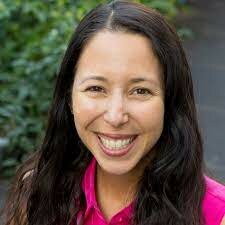
You’ve had a comprehensive evaluation of your child’s functioning….now what?! In this webinar, we will review the different areas of a typical psychoeducational assessment report. The goal is to help parents understand the different areas assessed, including cognitive, academic, language, executive processes, and social-emotional functioning. Additionally, we will discuss how to digest and use the information that is provided to help your child.
Dr. Orit Goldhamer
Orit Goldhamer, Ph.D., a child, adolescent, and young adult NYS Licensed Psychologist in New York City, provides psychotherapy and psychoeducational testing as a private practitioner. She also is the Middle School Psychologist at Churchill School and Center, an adjunct Professor at Manhattanville College and adjunct Supervisor at Ferkauf Graduate School of Psychology at Yeshiva University. Dr. Goldhamer received her Doctorate degree at Ferkauf in School and Clinical Psychology. She also worked in the Speech, Language, Learning and Hearing Department of the New York City International Center for the Disabled and as the Crisis Residence and Residential Treatment Facility psychologist at the Children’s Village in Dobbs Ferry, NY.

A variety of free, online technologies exist to help scaffold the writing process for students of all ages. This HSWOW webinar will show teachers a toolkit of websites to help them differentiate their instruction for learners who are struggling with organization, grammar, expressive language, sequencing and other writing difficulties. Participants will learn how to effectively use creative technology solutions to engage struggling writers and to give them the tools to succeed.
Please note that the facilitator will be “sharing” her desktop with participants as she goes to various websites and demonstrates online activities. As such, this particular session of HSWOW does not lend itself to phone-only participation.
Jeannie Crowley
Jeannie Crowley, MA, MS, is the Manager of Digital Media and Learning at Bank Street College. Her background includes years as a K-12 Special Education teacher and teacher trainer in the Bronx. With master’s degrees in both Elementary Education and Digital Media Design and Learning, she works with educators to create innovative, constructivist digital learning experiences for students. She was awarded the Samsung Hope for Education and the ING Unsung Heroes awards for her work with young children and technology.
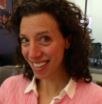
Do you ever wonder about your child’s attention? Do you often hear yourself requesting (or begging) your child to “Pay attention,” “Stop day-dreaming,” or even “Stop moving around!”? Have you ever wondered (or been told by your child’s teacher) that attention issues might be getting in the way of your child’s success in school? In this one-hour session parents will have an opportunity to examine the three major attention controls (mental energy, processing and production) and how they manifest in behaviors. With the understanding that attention is a dynamic construct with many variables, we will develop a deeper understanding of our own children’s attention profiles. We will also look at the ways strengths and weaknesses in attention can affect a child’s academic success, how to talk to our children about attention, and develop strategies that can be used at home or at school to increase success.
Kate Sussman
Kate Sussman, M.Ed, a special education consultant in New York City and the newest addition to the Hidden Sparks team, acts as an External Coach and mentor to new Internal Coaches from outside the tri-state area. She worked for seven years with the Opportunity Charter School in Harlem. Previously, she coordinated after school and summer programs for at risk students and worked with Manhattan public high school teachers to create inclusive classrooms. Kate has been a facilitator for Schools Attuned, is a certified trainer for the University of Kansas Strategic Instruction Model and a former adjunct instructor at Bank Street College of Education. Kate has worked with teachers from public, private, and Jewish day schools, grades K—12.

Frequently misunderstood and always a concern of school administrators, Higher Order Cognition (HOC) is a very important pathway of learning. Teachers want to emphasize the importance of higher order thinking in their lesson planning but often they don’t understand the different aspects of this construct. In this webinar, we will explore the 7 different categories of higher order thinking and gain an understanding of how it is possible to have both areas of strengths and areas of challenges in this learning pathway. We will consider ways to enhance students’ higher order thinking skills and how to support students who struggle with these subsets of thinking.
Karen Kruger
Karen Kruger, MS, is the Director of Curriculum & Professional Development at the Charles Armstrong School in California, a school that serves children with language based learning disabilities. Prior to that position, Ms. Kruger was the Director of Education at Hidden Sparks, and served as Hidden Sparks’ Internal Coach Program school- based mentor, a regional facilitator, and the lead trainer for Title funded workshops. Ms. Kruger also served as a field facilitator and course instructor for Schools Attuned, teaching courses offered by All Kinds of Minds, developed curricula for workshops, and mentored and supervised teachers in grades K-12. A former adjunct professor at Bank Street College of Education, where she received her Master’s degree, Ms. Kruger has taught in elementary and middle schools.

Why do some children whimper quietly while others howl? Why are some children timid, and others gutsy? And why does a child who is so comfortable in one situation become distressed in another? This workshop will explore the factors of temperament that influence our behavior. While temperament need not limit a child’s life, parents’ understanding and appreciation of a child’s temperament can make daily life, and learning, easier and more successful.
Dr. Rona Novick
Rona Novick, PhD, Co-Educational Director of Hidden Sparks, is the Dean of the Azrieli Graduate School of Jewish Education and Administration at Yeshiva University and holds the Raine and Stanley Silverstein Chair in Professional Ethics and Values. She holds an appointment as Associate Clinical Professor of Child Psychology at North Shore-Long Island Jewish Medical Center.

As partners in your child’s education, understanding the art and science of study skills will help you support your child’s learning process. This webinar offers an in-depth look at the skills students need to function in school and in the real world, including organization, time management, planning, listening and summarizing for notes, communication, stress reduction, test taking and goal setting. This session will help parents in these crucial areas with practical tips and hands-on ideas.
Zipora Schuck
Zipora Schuck, MA, MS, is the founder of Pathways Consulting Services LLC, an agency providing professional development services to teachers, principals, therapists and parents. She is a NYS Certified school psychologist holding masters degrees in both special education and school psychology. Mrs. Schuck is currently the Director of the Learning Center at the Beth Rochel School. She is a Catapult premium provider as well as a Torah Umesorah trainer whose popular workshops are usually standing room only! Additionally, she serves as adjunct faculty for Mercy College in their school of Education and Psychology.
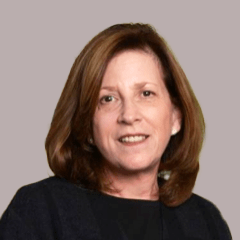
You would like your child to be more organized, get homework done before midnight, and remember to take his/her books to school each day. For some children, organization comes naturally, but for the others, organization skills need to be directly taught and continually reinforced. Learn strategies to make your child’s life and yours less stressful and more productive.
Dr. Jane Gertler
Jane Gertler, Ed.D., the Director of the Office of Teaching and Learning at the Churchill School and Center, a K – 12 school for students with learning disabilities in New York City, spent more than 20 years as a school administrator in Westchester, where she served as Director of Special Education in Irvington, prior to becoming the Director of Special Education and then Director of Curriculum, Assessment and Professional Development in Edgemont. She holds a B.S. from Cornell University, a master’s in Education from New York University, and a Doctorate in School Administration from Fordham University.

Interactions between people and their environment, also known as ecology, must also be considered when thinking about student success in the classroom. Classroom ecology has a major impact on student achievement. Now that school has been underway for a few months, we will reflect on what components of a positive classroom culture we have established, and what else we can do to establish an optimal learning environment.
Kate Sussman
Kate Sussman, M.Ed, a special education consultant in New York City and the newest addition to the Hidden Sparks team, acts as an External Coach and mentor to new Internal Coaches from outside the tri-state area. She worked for seven years with the Opportunity Charter School in Harlem. Previously, she coordinated after school and summer programs for at risk students and worked with Manhattan public high school teachers to create inclusive classrooms. Kate has been a facilitator for Schools Attuned, is a certified trainer for the University of Kansas Strategic Instruction Model and a former adjunct instructor at Bank Street College of Education. Kate has worked with teachers from public, private, and Jewish day schools, grades K—12.

In every classroom there will be students struggling with some of the crucial executive functions – the tasks that help us execute our daily activities. These processes such as organization, time management, planning, transitioning and attention are key components to a successful educational experience. Late, Lost but Not Lazy is a webinar designed to enhance teachers’ understanding of children who struggle with executive functioning challenges and help strategize practical classroom based interventions that really work.
Zipora Schuck
Zipora Schuck, MA, MS, is the founder of Pathways Consulting Services LLC, an agency providing professional development services to teachers, principals, therapists and parents. She is a NYS Certified school psychologist holding masters degrees in both special education and school psychology. Mrs. Schuck is currently the Director of the Learning Center at the Beth Rochel School. She is a Catapult premium provider as well as a Torah Umesorah trainer whose popular workshops are usually standing room only! Additionally, she serves as adjunct faculty for Mercy College in their school of Education and Psychology.

How often we wonder why some children seem to easily accomplish tasks and achieve milestones while others struggle to keep up. As parents, the dilemma is whether to assume these differences are part of typical development or indicators of more significant challenges. Understanding child development can be an extremely powerful and helpful lens for parents. In this webinar, we will present child development along a continuum, from typically developing children to those with developmental challenges in behavior or learning. Some behavioral and learning issues that are outside the pattern of typical development will be explored and we will discuss the developmental tasks usually mastered at particular ages and phases.
Dr. Rona Novick
Rona Novick, PhD, Co-Educational Director of Hidden Sparks, is the Dean of the Azrieli Graduate School of Jewish Education and Administration at Yeshiva University and holds the Raine and Stanley Silverstein Chair in Professional Ethics and Values. She holds an appointment as Associate Clinical Professor of Child Psychology at North Shore-Long Island Jewish Medical Center.

Spring is an excellent time to begin to prepare 7th grade students for their transition to high school. This HSWOW webinar will cover how to teach students about their personal learning styles, and how to become effective communicators and self-advocates for success in high school. The course will include different types of communication skills necessary for helping 8th graders write to their future high school teachers, plan and run meetings with high school teachers, and communicate the content of their IEPs (Individualized Education Program).
Karen Kruger
Karen Kruger, MS, is the Director of Curriculum & Professional Development at the Charles Armstrong School in California, a school that serves children with language based learning disabilities. Prior to that position, Ms. Kruger was the Director of Education at Hidden Sparks, and served as Hidden Sparks’ Internal Coach Program school- based mentor, a regional facilitator, and the lead trainer for Title funded workshops. Ms. Kruger also served as a field facilitator and course instructor for Schools Attuned, teaching courses offered by All Kinds of Minds, developed curricula for workshops, and mentored and supervised teachers in grades K-12. A former adjunct professor at Bank Street College of Education, where she received her Master’s degree, Ms. Kruger has taught in elementary and middle schools.

This HSWOW course offers an in-depth look at the skills students need to function in school and the real world. Study skills include organization, time management, planning, listening and summarizing for notes, communication, stress reduction, test taking and goal setting. This workshop will help teachers in these crucial areas with practical tips and hands-on ideas that can be embedded throughout their curricula.
Zipora Schuck
Zipora Schuck, MA, MS, is the founder of Pathways Consulting Services LLC, an agency providing professional development services to teachers, principals, therapists and parents. She is a NYS Certified school psychologist holding masters degrees in both special education and school psychology. Mrs. Schuck is currently the Director of the Learning Center at the Beth Rochel School. She is a Catapult premium provider as well as a Torah Umesorah trainer whose popular workshops are usually standing room only! Additionally, she serves as adjunct faculty for Mercy College in their school of Education and Psychology.

Reading comprehension, the process of constructing meaning through active interaction with a text, is the ultimate goal of reading instruction. This HSWOW webinar will focus on various areas of reading comprehension, such as predictions and prior knowledge, questioning, summarization, think-aloud and visualization, and will include strategies and techniques that may be utilized within each area. Participants will learn explicit approaches to helping students develop and apply these comprehension strategies.
Hadassah Berg
Hadassah (Dassi) Berg, Ed.D, a literacy specialist in private practice, provides teacher training in literacy to schools and organizations. She also serves as an adjunct professor at Mercy College and as a consultant, program developer and adjunct professor at Daemen College. Previously, Dr. Berg worked in the New York City public schools as a special education teacher and staff developer. Dr. Berg earned her master’s degree and doctorate degree in special education from Teachers College, Columbia University, and is certified in school administration and supervision.
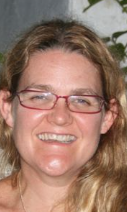
Technology can assist students to overcome difficulties with academic tasks, from accessing information to processing information and creating output. Computer based technology can help students read, write and organize. In this HSWOW course we will focus on several ways to use a computer and other devices, such as smartphones, MP3 players and tablets with students. Skills instruction will include techniques for reading text aloud, creating text from speech, taking annotated notes on the screen and using basic organization tools, such as online calendars.
Shannon Stringer
Shannon Stringer, M.Ed, M. Sp. Ed serves as head of Technology Integration for The Churchill School, a K-12 nonpublic school, serving children with learning disabilities. For the past two decades, she has taught technology and technology integration to students and teachers in grades K-12. Holding a Masters in Education from Teacher’s College and a Masters in Special Education from Hunter College, Ms. Stringer believes that technology is a powerful tool for collaboration and learning for teachers and students.

Every teacher and educator knows the behavior and learning of children and teens are impacted by their moods. From irritability to anxiety to sadness, moods can alter the interactions among students, peers and teachers. This HSWOW webinar offers an understanding of common moods that can be challenging to students and educators, and provides guidelines for how they can be recognized and addressed. The role of the teacher and environmental stimuli in contributing to difficult student moods as well as techniques for helping children shift from unproductive to healthier moods will be discussed. Tools for teaching children to recognize and modulate their own moods will be included, along with reflective practices to prevent teachers’ moods, beliefs and expectations from escalating challenging moods.
Dr. Rona Novick
Rona Novick, PhD, Co-Educational Director of Hidden Sparks, is the Dean of the Azrieli Graduate School of Jewish Education and Administration at Yeshiva University and holds the Raine and Stanley Silverstein Chair in Professional Ethics and Values. She holds an appointment as Associate Clinical Professor of Child Psychology at North Shore-Long Island Jewish Medical Center.
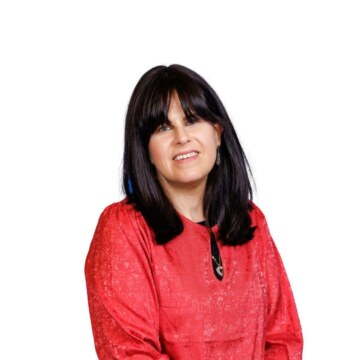
Technology plays a major social and educational role in schools today. This HSWOW webinar will show teachers how to capitalize on their students’ love of technology to improve their educational outcomes. An abundance of FREE educational resources and web 2.0 tools will be introduced to help engage students. Participants will learn how to give students technology projects as an alternative to writing assignments, create video stories and animated comic strips.
Please note that the facilitator will be “sharing” her desktop with participants as she goes to various websites and demonstrates online activities. As such, this particular session of HSWOW does not lend itself to phone-only participation.
Faigy Ravitz
Faigy Ravitz, Technology Integration Specialist at The Center for Initiatives in Jewish Education of the Gruss Foundation, is a certified master trainer in SMART software and presenter at technology and education workshops for yeshivas and Jewish day schools. Recognized by SMART Technologies as a SMART Exemplary Educator for her innovative and creative use of Notebook software, Ms. Ravitz specializes in technology integration as a tool to enhance teaching and learning. She received her teaching certificate from Beth Jacob Teachers Seminary in Brooklyn, and has spent nearly two decades as a classroom teacher.

For differentiation to happen, teachers need to gather and utilize information about their students. Information should relate to students’ readiness, interests, and learning profiles. Pre-, formative and summative assessments provide teachers with the data to plan meaningful learning experiences for all students. This webinar will focus on the role of assessments in differentiated instruction and strategies to develop and implement quality assessments.
Dr. Jane Gertler
Jane Gertler, Ed.D., the Director of the Office of Teaching and Learning at the Churchill School and Center, a K – 12 school for students with learning disabilities in New York City, spent more than 20 years as a school administrator in Westchester, where she served as Director of Special Education in Irvington, prior to becoming the Director of Special Education and then Director of Curriculum, Assessment and Professional Development in Edgemont. She holds a B.S. from Cornell University, a master’s in Education from New York University, and a Doctorate in School Administration from Fordham University.
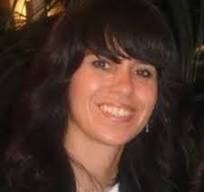
Do you want to add more games and other fun activities to your classroom repertoire? Research shows that kids learn better when they enjoy what they learn. When students play games with material that they are learning, they take ownership and generalize to other subjects. Join us for this creative webinar and learn techniques for creating hassle-free games and activities. Participants will come away with a variety of new game ideas that they can immediately implement in their classrooms. All games can be used with virtually any classroom topic.
Rivkah Dahan
Mrs. Rivkah Dahan is the Coordinator for No Child Left Behind Program for Hidden Sparks. A former mainstream and special education teacher, she holds a Master’s Degree in Special Education from City University of New York, is a certified advanced trainer for the Nurtured Heart approach, and has served as a mentor for The Jewish New Teacher Project. She was the founding director of Torah Umesorah’s Educational Resource Center serving teachers and principals nation-wide, as well as Director of the Teacher Center of the Jewish Education Center of Cleveland. She is the co-author of Creating a Learning Environment: The Ultimate Jewish Teacher’s Handbook and is a nationally recognized presenter.
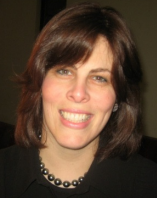
This course will focus on the complex skill of reading. The stages of reading development will be explored as well as the various methods to teach reading to children at different levels. A focus of the session will be on the creation and implementation of purposeful reading groups to address the range and levels of readers in your class.
Amy Goldman
Amy Goldman has worked in the New York City public schools for over 20 years and is currently an Assistant Principal. She holds a Masters of Arts in Reading Instruction, a Masters of Science in Teaching English to Speakers of Other Languages (TESOL) and is certified in School Administration and Supervision. She began her career as a reading teacher for the Department of Education, and later became a literacy coach and staff developer for the New York City public school system. Ms. Goldman has taught graduate level reading instruction courses and has conducted workshops in literacy for the United Federation of Teachers.

It’s December. Now that you’re familiar with your students, this is the perfect time to step back and ask “How can I modify my classroom to further enhance my student’s success?” Using a neurodevelopmental lens, we will consider the demands involved with classroom configuration and discuss how you can adjust your physical classroom to accommodate your diverse learners and encourage their success.
Karen Kruger
Karen Kruger, MS, is the Director of Curriculum & Professional Development at the Charles Armstrong School in California, a school that serves children with language based learning disabilities. Prior to that position, Ms. Kruger was the Director of Education at Hidden Sparks, and served as Hidden Sparks’ Internal Coach Program school- based mentor, a regional facilitator, and the lead trainer for Title funded workshops. Ms. Kruger also served as a field facilitator and course instructor for Schools Attuned, teaching courses offered by All Kinds of Minds, developed curricula for workshops, and mentored and supervised teachers in grades K-12. A former adjunct professor at Bank Street College of Education, where she received her Master’s degree, Ms. Kruger has taught in elementary and middle schools.
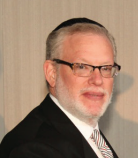
Good teaching utilizes a number of core instructional techniques to manage individual student difference in the classroom. By identifying and utilizing these core strategies, and understanding their neurodevelopment underpinnings, both targeted individual students and whole classes will benefit.
Judah Weller
Judah Weller, Ed.D. Educational Director for PTACH, is also an Associate Professor at Touro College in the Graduate Program in Speech and Language Pathology. Dr. Weller has trained over 600 Jewish educators as a Jewish day Schools Attuned® facilitator. He is credited with having established the first Jewish Studies Resource Room (in 1977) at HAFTR. Dr. Weller holds a doctorate in education from Azrieli Graduate School of Education of Yeshiva University and a master’s in speech and language from Adelphi University.

When you hear an expert teacher question students it may sound deceptively easy. It is not. Learning how to ask powerful questions of students is a very valuable skill and like any other skill, takes time and deliberate practice to develop. In this session we will explore various kinds of questioning techniques and the multiple reasons for questioning students such as: to stimulate and provoke them to think creatively; to help them clarify their thinking; to encourage them to think critically; to teach students to be reflective and to develop self-control. In addition, educators will discuss ways to be good listeners that validate students’ ideas and builds a strong sense of community in a group.
Claire Wurtzel
Claire Wurtzel, MS, Co-Educational Director of Hidden Sparks, recently retired as the Director of Faculty Development for the Churchill School and Center in New York. Prior to this position, Ms. Wurtzel was the Director of Faculty Development for the New York City Schools Attuned initiative for All Kinds of Minds, an institute co-founded by Dr. Mel Levine and Charles Schwab to help educators work effectively with struggling learners. In her capacity as Director, she oversaw Schools Attuned courses, mentor training and facilitator training for over 400 New York City schools.

Cooperative learning is an approach to learning that has attracted national attention. It is designed to support high levels of engagement within carefully designed small groups of learners. Many teachers need support in order to develop and implement effective cooperative learning strategies. This two-session webinar is designed to introduce educators to this approach to learning and will provide a range of strategies to support the group process in your classroom.
Harriet Lenk
Harriet Lenk, Ph.D., a former middle school teacher and assistant principal, holds a doctorate in curriculum and teaching from Teachers College, Columbia University and a master’s degree in supervision and administration from Bank Street College of Education. Dr. Lenk is a member of the Graduate Faculty of Bank Street College of Education in New York City. Her expertise in teacher education includes induction support for beginning teachers, early adolescent development, curriculum development, cooperative learning, and experiential group process.

Cooperative learning is an approach to learning that has attracted national attention. It is designed to support high levels of engagement within carefully designed small groups of learners. Many teachers need support in order to develop and implement effective cooperative learning strategies. This two-session webinar is designed to introduce educators to this approach to learning and will provide a range of strategies to support the group process in your classroom.
Harriet Lenk
Harriet Lenk, Ph.D., a former middle school teacher and assistant principal, holds a doctorate in curriculum and teaching from Teachers College, Columbia University and a master’s degree in supervision and administration from Bank Street College of Education. Dr. Lenk is a member of the Graduate Faculty of Bank Street College of Education in New York City. Her expertise in teacher education includes induction support for beginning teachers, early adolescent development, curriculum development, cooperative learning, and experiential group process.

Reading is about understanding and processing; therefore, without comprehension, real reading does not occur. Learn effective comprehension strategies to help your students access prior knowledge, set a purpose for reading, organize information and make meaningful connections to narrative and expository text. This workshop is for Judaic and general studies teachers of grades 3 through high school.
Dr. Jane Gertler
Jane Gertler, Ed.D., the Director of the Office of Teaching and Learning at the Churchill School and Center, a K – 12 school for students with learning disabilities in New York City, spent more than 20 years as a school administrator in Westchester, where she served as Director of Special Education in Irvington, prior to becoming the Director of Special Education and then Director of Curriculum, Assessment and Professional Development in Edgemont. She holds a B.S. from Cornell University, a master’s in Education from New York University, and a Doctorate in School Administration from Fordham University.

How often we wonder why some students can achieve milestones while others struggle to keep up, and if these differences are part of typical development or indicators of more significant challenges? Understanding child development can be an extremely powerful and helpful lens for teachers. In this session, we will present child developmental along a continuum, from typically developing children to those with developmental challenges in behavior or learning. Some behavioral and learning issues that are outside the pattern of typical development will be explored and we will discuss the developmental tasks usually mastered at particular ages and phases.
This course will be offered two times: the first session will focus on primary school students and the second will focus on secondary school students.
Dr. Rona Novick
Rona Novick, PhD, Co-Educational Director of Hidden Sparks, is the Dean of the Azrieli Graduate School of Jewish Education and Administration at Yeshiva University and holds the Raine and Stanley Silverstein Chair in Professional Ethics and Values. She holds an appointment as Associate Clinical Professor of Child Psychology at North Shore-Long Island Jewish Medical Center.

How often we wonder why some students can achieve milestones while others struggle to keep up, and if these differences are part of typical development or indicators of more significant challenges? Understanding child development can be an extremely powerful and helpful lens for teachers. In this session, we will present child developmental along a continuum, from typically developing children to those with developmental challenges in behavior or learning. Some behavioral and learning issues that are outside the pattern of typical development will be explored and we will discuss the developmental tasks usually mastered at particular ages and phases.
This course will be offered two times: the first session will focus on primary school students and the second will focus on secondary school students.
Dr. Rona Novick
Rona Novick, PhD, Co-Educational Director of Hidden Sparks, is the Dean of the Azrieli Graduate School of Jewish Education and Administration at Yeshiva University and holds the Raine and Stanley Silverstein Chair in Professional Ethics and Values. She holds an appointment as Associate Clinical Professor of Child Psychology at North Shore-Long Island Jewish Medical Center.
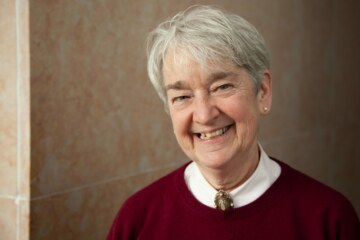
Transitions happen all the time. Most adults have learned to cope and strategize, either from past experiences or by seeking support from people and resources. Children, on the other hand, require the teacher’s leadership, support and explanation to cope with the variety of transitions they encounter throughout the school day. Efficient and developmentally appropriate transitions and expectations are key to a ‘steady’ classroom (especially for students with learning issues). This seminar will focus on the many kinds of transitions that students must pass through at school. We will explore the teacher’s role in teaching transitions and knowing how and when to transfer the responsibility to the students. We will offer and share tips for creating transitional practices and activities for the whole class as well as for individual students, in an effort to maintain efficient and focused instruction.
Andrea Rousso
Andrea Rousso has taught in the New York City public schools for 33 years and is currently a special education teacher in a kindergarten collaborative team classroom and a certified facilitator for the Schools Attuned® Initiative. Previously, she served as a special needs teacher for children in grades K-6 in a day treatment center and mentor to teachers in self-contained special education classes and collaborative teams in inclusive classrooms. Ms. Rousso has also led workshops for teachers, taught classes at the graduate level, and tutored children with learning disabilities.

By understanding the neurodevelopmental demands of Kriyah, participants will be able to pinpoint specific weaknesses and develop a comprehensive management plan for building skills. Considerations for second language learning (decoding only) will also be discussed.
Judah Weller
Judah Weller, Ed.D. Educational Director for PTACH, is also an Associate Professor at Touro College in the Graduate Program in Speech and Language Pathology. Dr. Weller has trained over 600 Jewish educators as a Jewish day Schools Attuned® facilitator. He is credited with having established the first Jewish Studies Resource Room (in 1977) at HAFTR. Dr. Weller holds a doctorate in education from Azrieli Graduate School of Education of Yeshiva University and a master’s in speech and language from Adelphi University.

This course will discuss the various pathways of learning and how they interact with each other to form a learning profile of strengths and weaknesses. The pathways include attention, memory, language, organization, social cognition, neuro-motor functioning and higher-order thinking. Utilizing hands-on activities, teachers will learn more about their own learning profiles and those of their students. This Course is a pre-requisite to Exploring Learning Processes in a Judaic Studies Curriculum and is highly recommended for Analyzing a Lesson.
Sorry, no recording available.
Claire Wurtzel
Claire Wurtzel, MS, Co-Educational Director of Hidden Sparks, recently retired as the Director of Faculty Development for the Churchill School and Center in New York. Prior to this position, Ms. Wurtzel was the Director of Faculty Development for the New York City Schools Attuned initiative for All Kinds of Minds, an institute co-founded by Dr. Mel Levine and Charles Schwab to help educators work effectively with struggling learners. In her capacity as Director, she oversaw Schools Attuned courses, mentor training and facilitator training for over 400 New York City schools.

“Pay Attention!”; “You’re not trying”; “You re just lazy”; “You re so hyper!” Frequently, teachers and parents make these comments to students who have attention problems. In this two-session, Participants will begin by looking at their own attention strengths and struggles as a way to explore the three major attention controls—mental energy, processing and production controls. Understanding the impact on a student’s academic life of a weakness in any one of the control systems, and strategies to support the student, will be the focus of the session.

Language influences every aspect of the curriculum, affecting the way children learn and teachers teach. This two-session course will focus on the role language plays in learning, including decoding and comprehension, vocabulary and concept knowledge, thinking and reasoning, narrative development, writing and social skills. Participants will learn techniques and strategies for enhancing language learning in the classroom.
Claire Wurtzel
Claire Wurtzel, MS, Co-Educational Director of Hidden Sparks, recently retired as the Director of Faculty Development for the Churchill School and Center in New York. Prior to this position, Ms. Wurtzel was the Director of Faculty Development for the New York City Schools Attuned initiative for All Kinds of Minds, an institute co-founded by Dr. Mel Levine and Charles Schwab to help educators work effectively with struggling learners. In her capacity as Director, she oversaw Schools Attuned courses, mentor training and facilitator training for over 400 New York City schools.

Memory plays a key role in students’ success in school. In this two-session we examine memory from two points of view: the typical memory demands made on students in school and what it is like for a student who struggles with some aspect of memory. Participants will learn about some of the mind’s systems for taking in and storing information, and making it available as needed.
Claire Wurtzel
Claire Wurtzel, MS, Co-Educational Director of Hidden Sparks, recently retired as the Director of Faculty Development for the Churchill School and Center in New York. Prior to this position, Ms. Wurtzel was the Director of Faculty Development for the New York City Schools Attuned initiative for All Kinds of Minds, an institute co-founded by Dr. Mel Levine and Charles Schwab to help educators work effectively with struggling learners. In her capacity as Director, she oversaw Schools Attuned courses, mentor training and facilitator training for over 400 New York City schools.

Memory plays a key role in students’ success in school. In this two-session we examine memory from two points of view: the typical memory demands made on students in school and what it is like for a student who struggles with some aspect of memory. Participants will learn about some of the mind’s systems for taking in and storing information, and making it available as needed.
Claire Wurtzel
Claire Wurtzel, MS, Co-Educational Director of Hidden Sparks, recently retired as the Director of Faculty Development for the Churchill School and Center in New York. Prior to this position, Ms. Wurtzel was the Director of Faculty Development for the New York City Schools Attuned initiative for All Kinds of Minds, an institute co-founded by Dr. Mel Levine and Charles Schwab to help educators work effectively with struggling learners. In her capacity as Director, she oversaw Schools Attuned courses, mentor training and facilitator training for over 400 New York City schools.

This two-session course will discuss predicting and noticing signs of escalating behavioral difficulties in students. It will provide participants with strategies to engage students in these most challenging moments, and strategies to help de-escalate and calm difficult situations. This course will introduce participants to the Positive Behavior Support approach on individual, class, and school-wide levels. The core practices of PBS, such as defining expectations, teaching children how to meet expectations, and acknowledging student success will be addressed. Participants will learn about identifying inappropriate behaviors and how to cultivate appropriate behavior. Strategies for students of all ages, and in all settings, will be presented.
Dr. Rona Novick
Rona Novick, PhD, Co-Educational Director of Hidden Sparks, is the Dean of the Azrieli Graduate School of Jewish Education and Administration at Yeshiva University and holds the Raine and Stanley Silverstein Chair in Professional Ethics and Values. She holds an appointment as Associate Clinical Professor of Child Psychology at North Shore-Long Island Jewish Medical Center.

This two-session course will discuss predicting and noticing signs of escalating behavioral difficulties in students. It will provide participants with strategies to engage students in these most challenging moments, and strategies to help de-escalate and calm difficult situations. This course will introduce participants to the Positive Behavior Support approach on individual, class, and school-wide levels. The core practices of PBS, such as defining expectations, teaching children how to meet expectations, and acknowledging student success will be addressed. Participants will learn about identifying inappropriate behaviors and how to cultivate appropriate behavior. Strategies for students of all ages, and in all settings, will be presented.
Dr. Rona Novick
Rona Novick, PhD, Co-Educational Director of Hidden Sparks, is the Dean of the Azrieli Graduate School of Jewish Education and Administration at Yeshiva University and holds the Raine and Stanley Silverstein Chair in Professional Ethics and Values. She holds an appointment as Associate Clinical Professor of Child Psychology at North Shore-Long Island Jewish Medical Center.
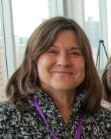
Parent/Teacher communications can take many forms. Whether they are informal chats or written report cards, these parent/teacher communications can be complex. In this session, Participants will discuss effective communications with parents using a rubric to guide the conversation and non-judgmental language to describe observed behaviors. Embedded in the session are ways to form alliances with parents and project a sense of optimism. In addition, teachers will plan and practice a form of Parent/Teacher communication.



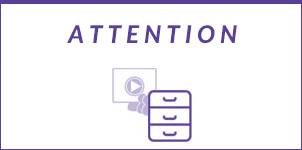
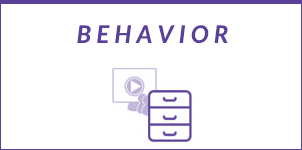


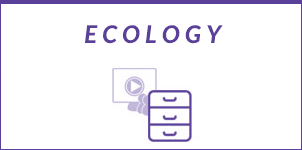
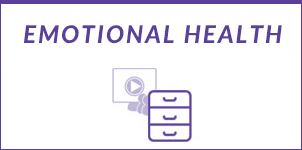
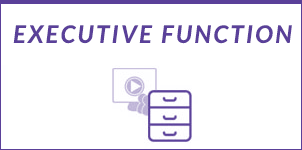
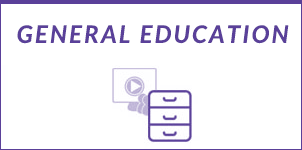
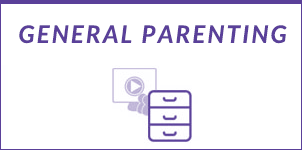
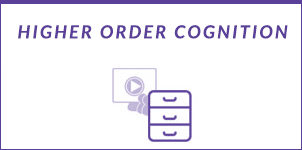
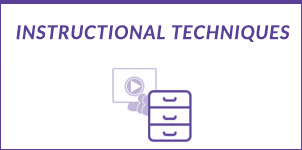
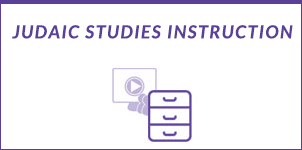

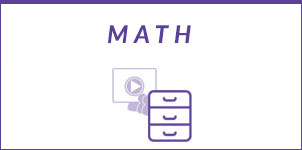
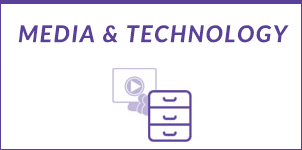

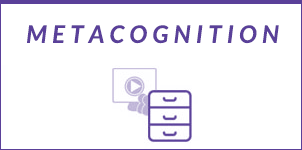

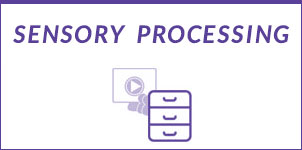
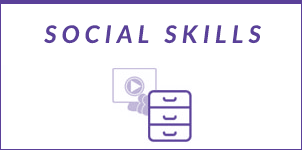

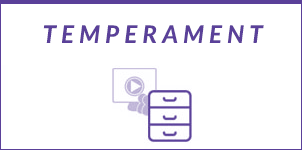
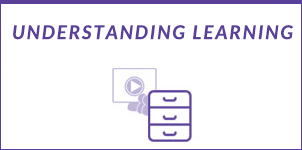
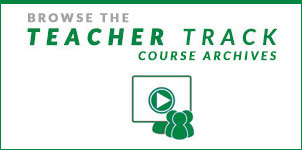

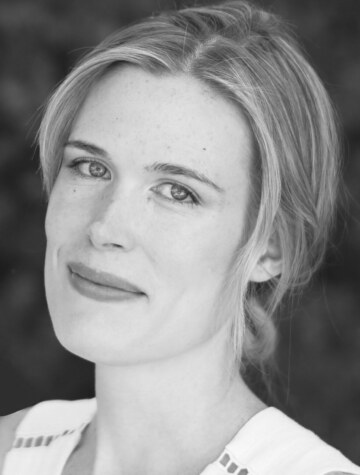
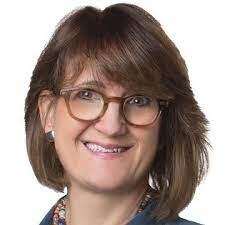
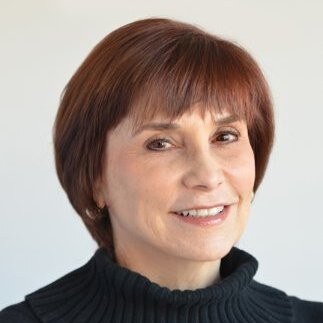

Please download the Chat to follow along.